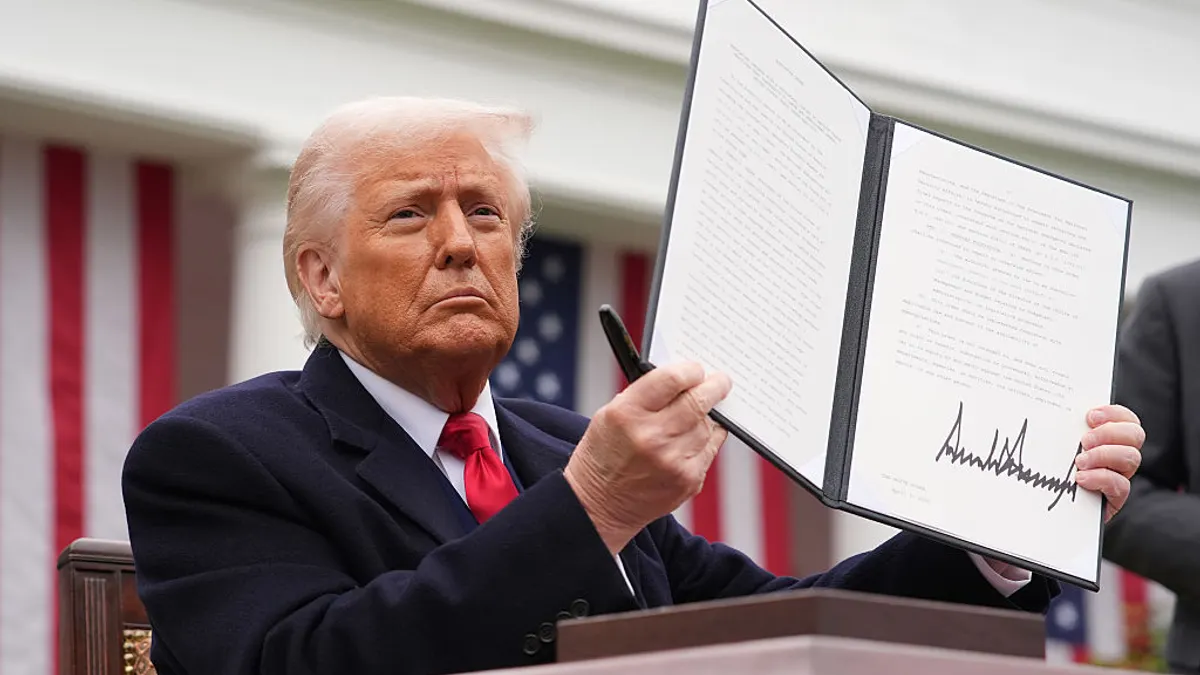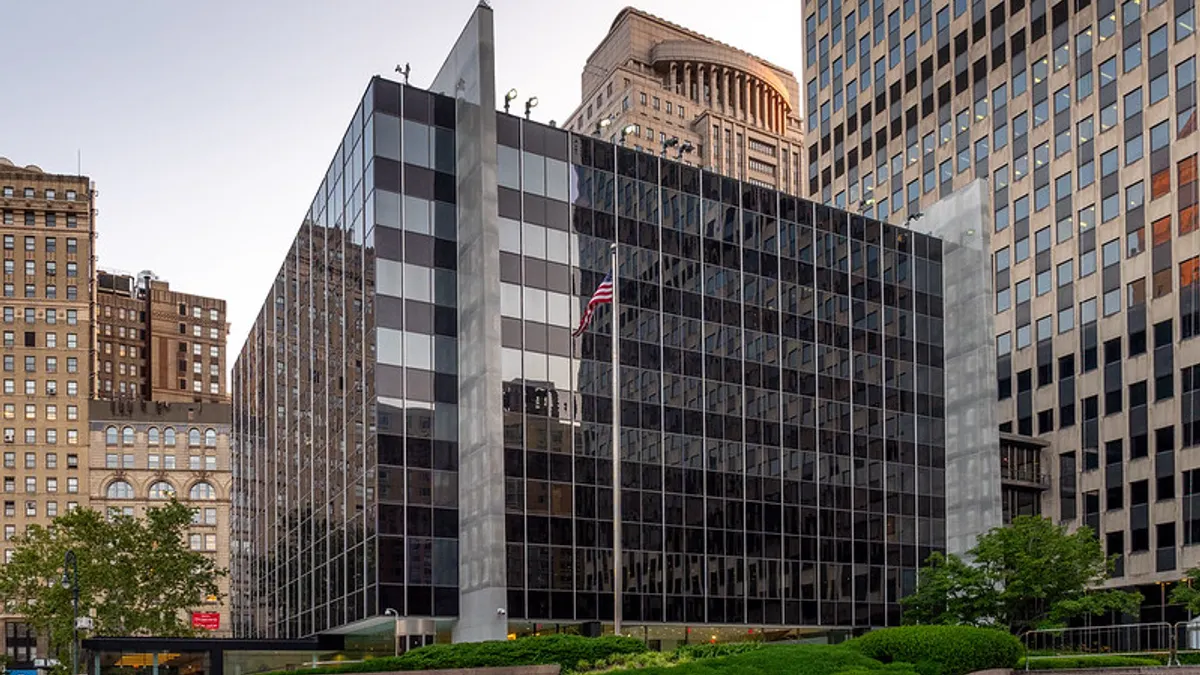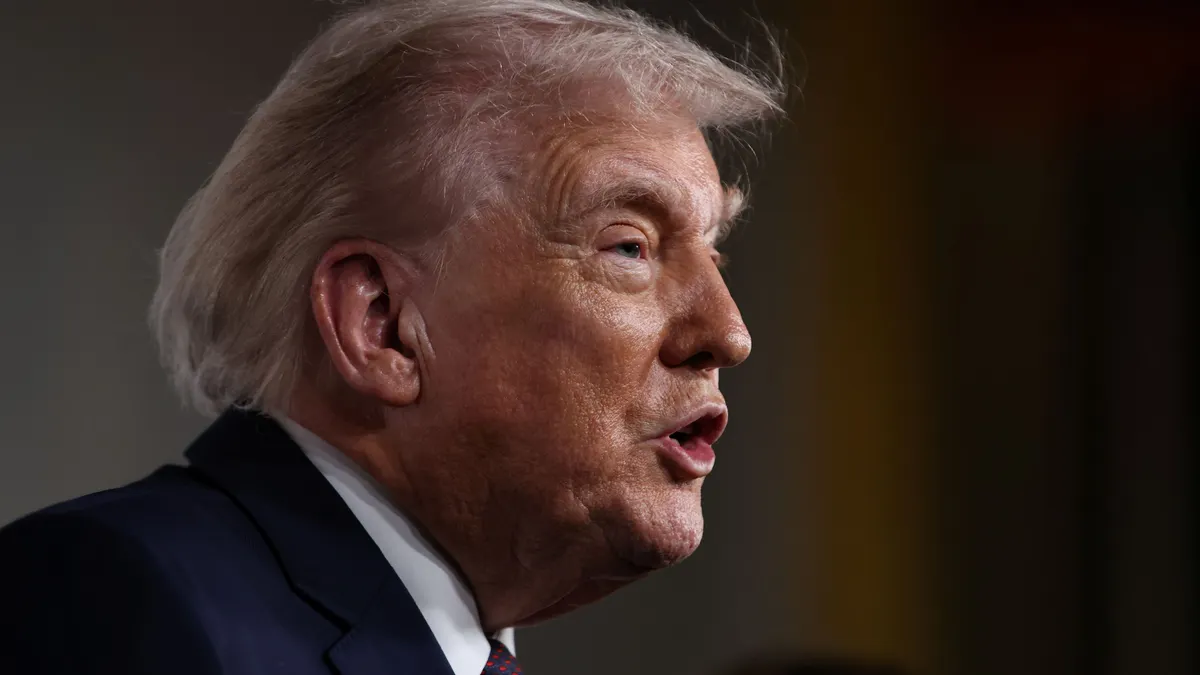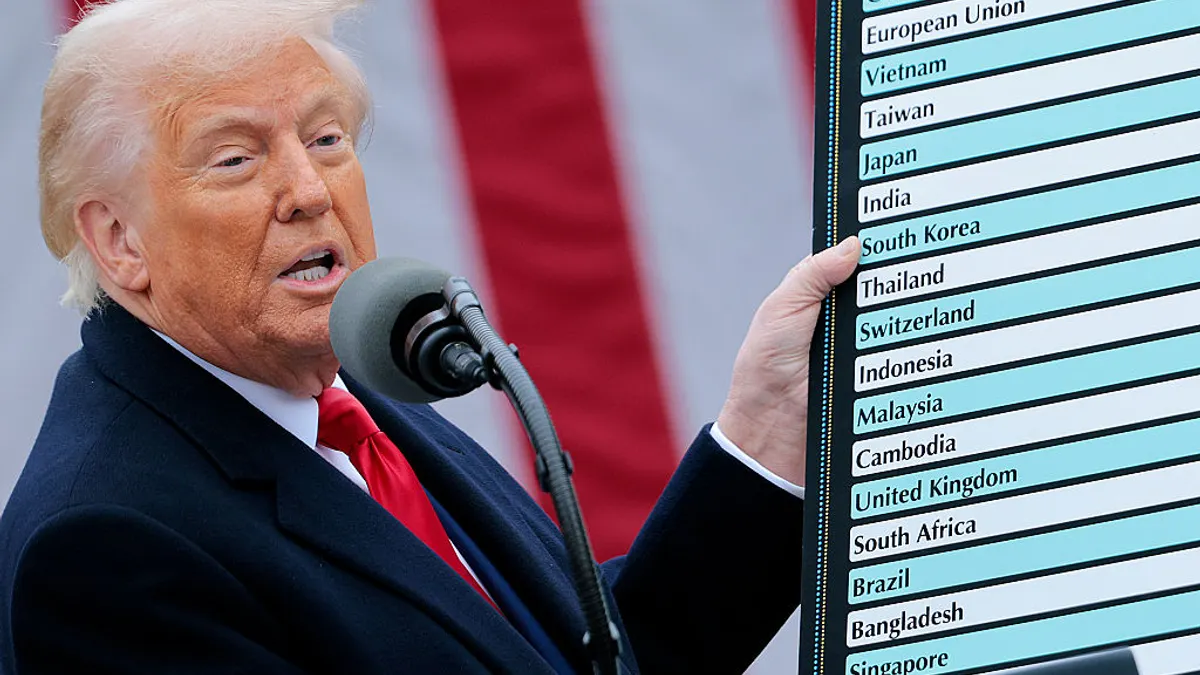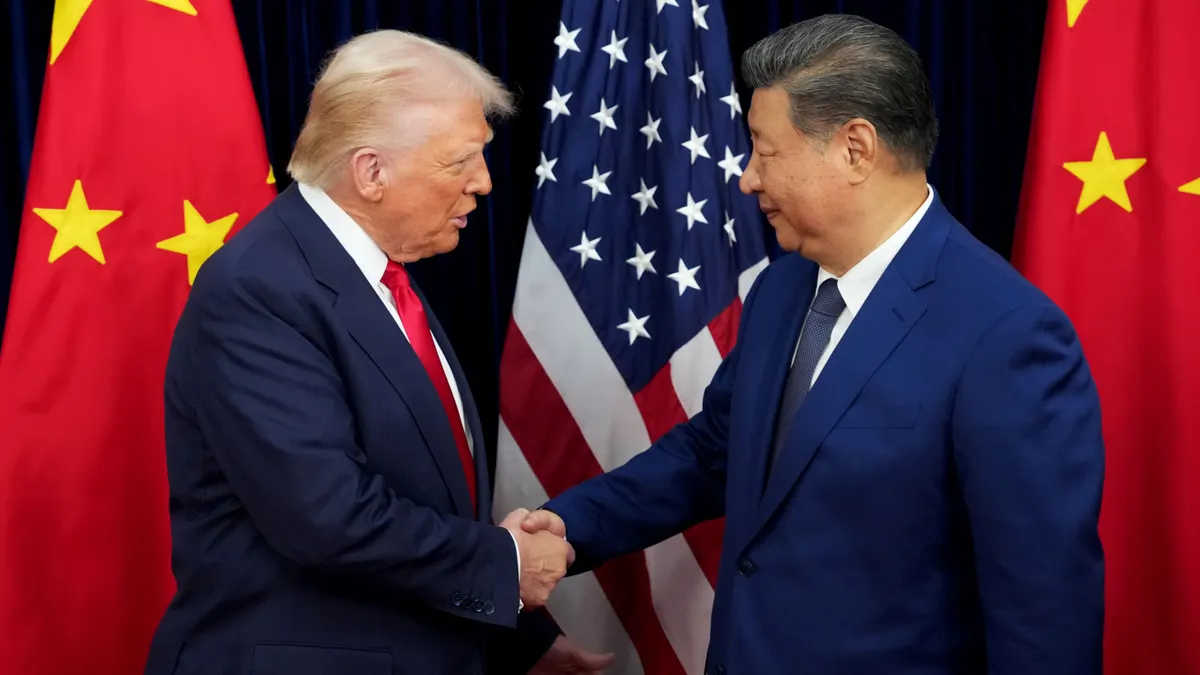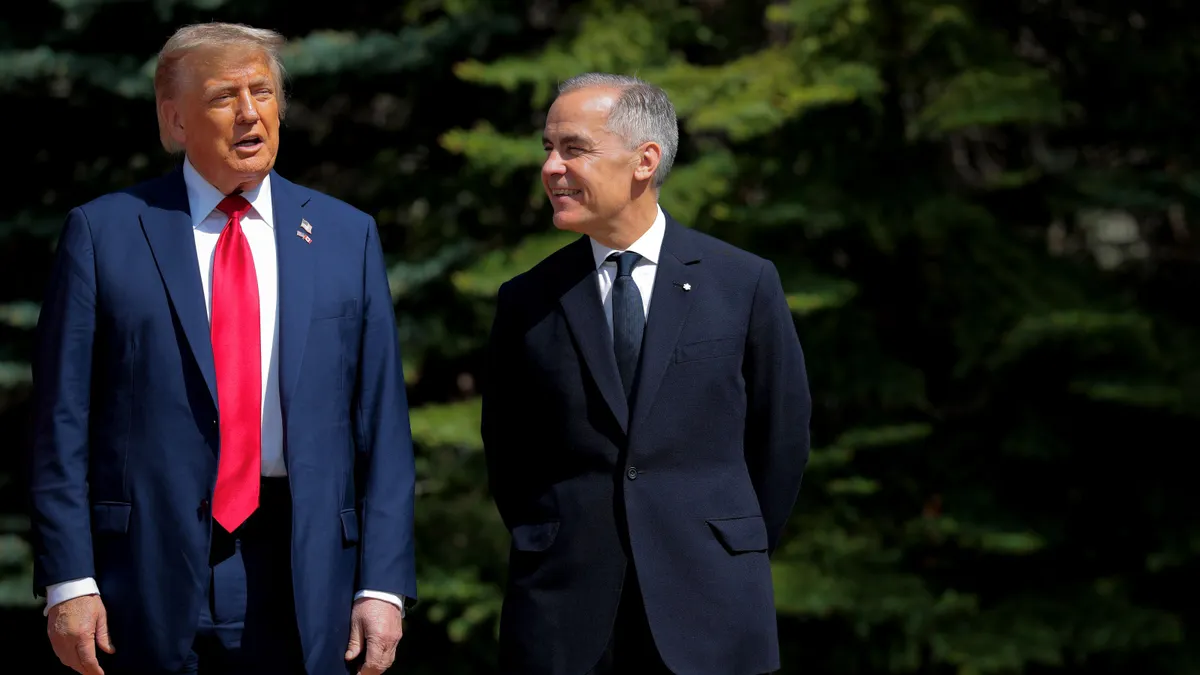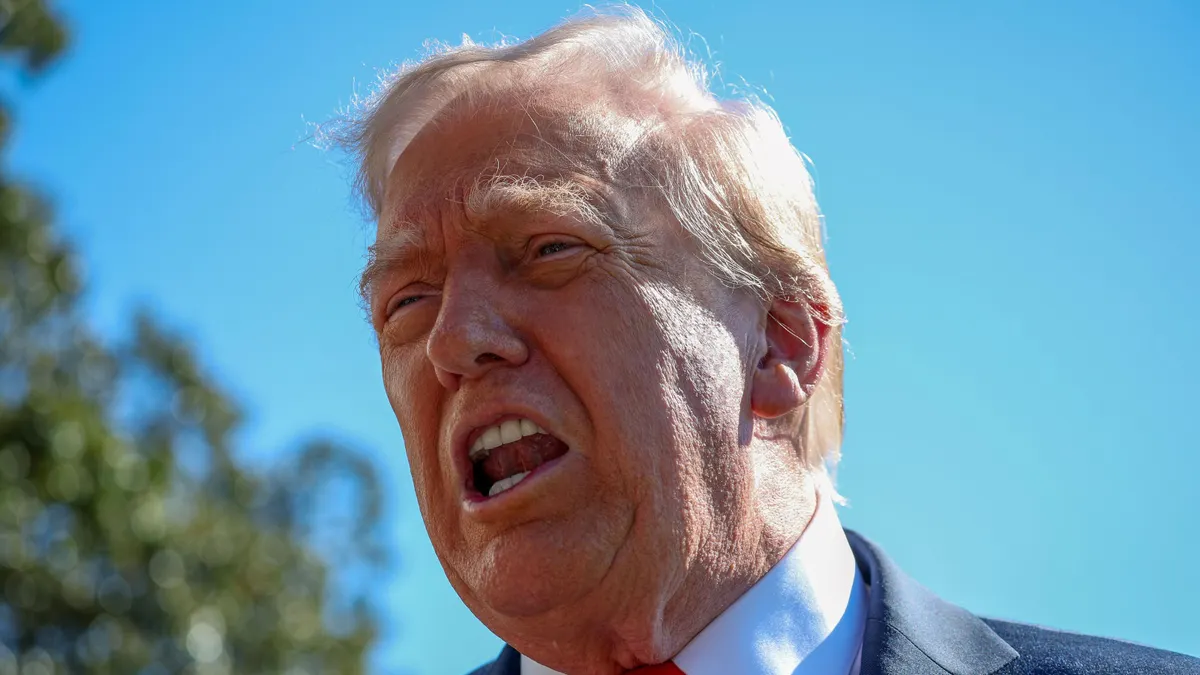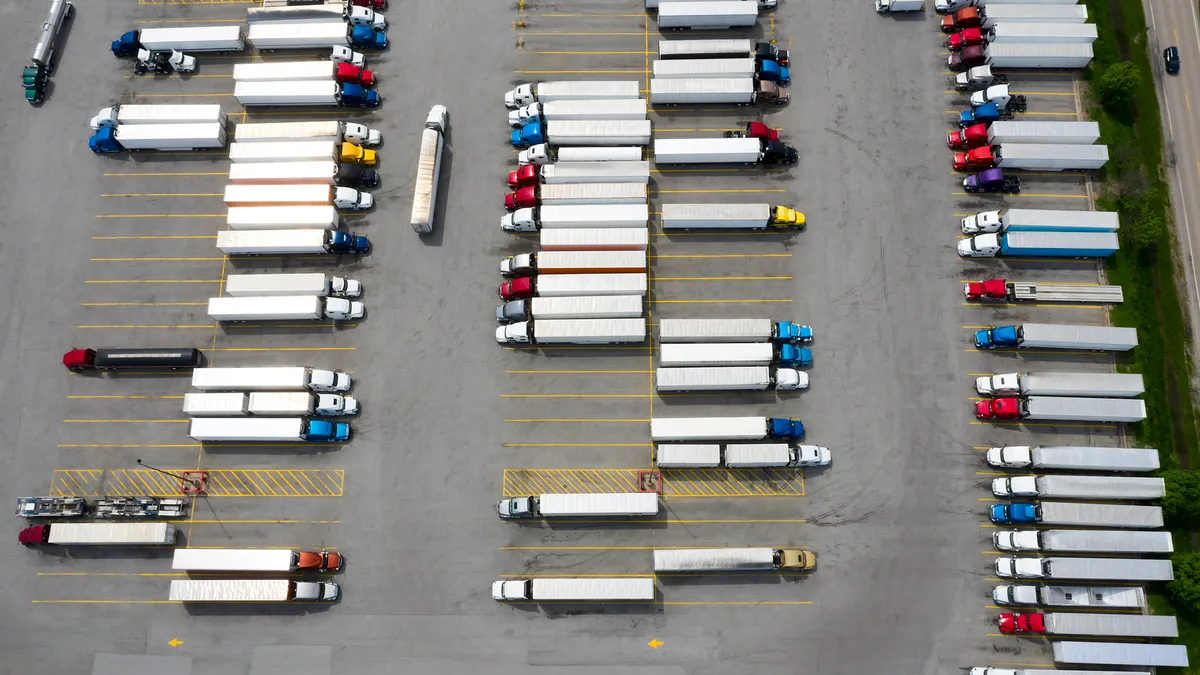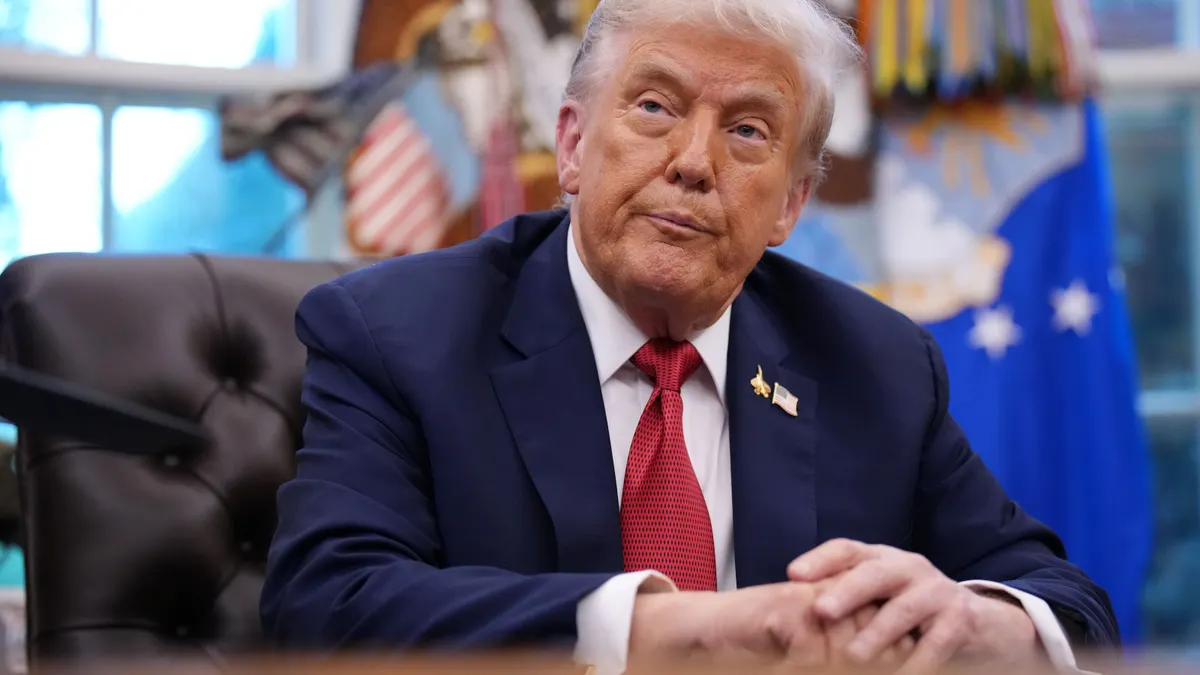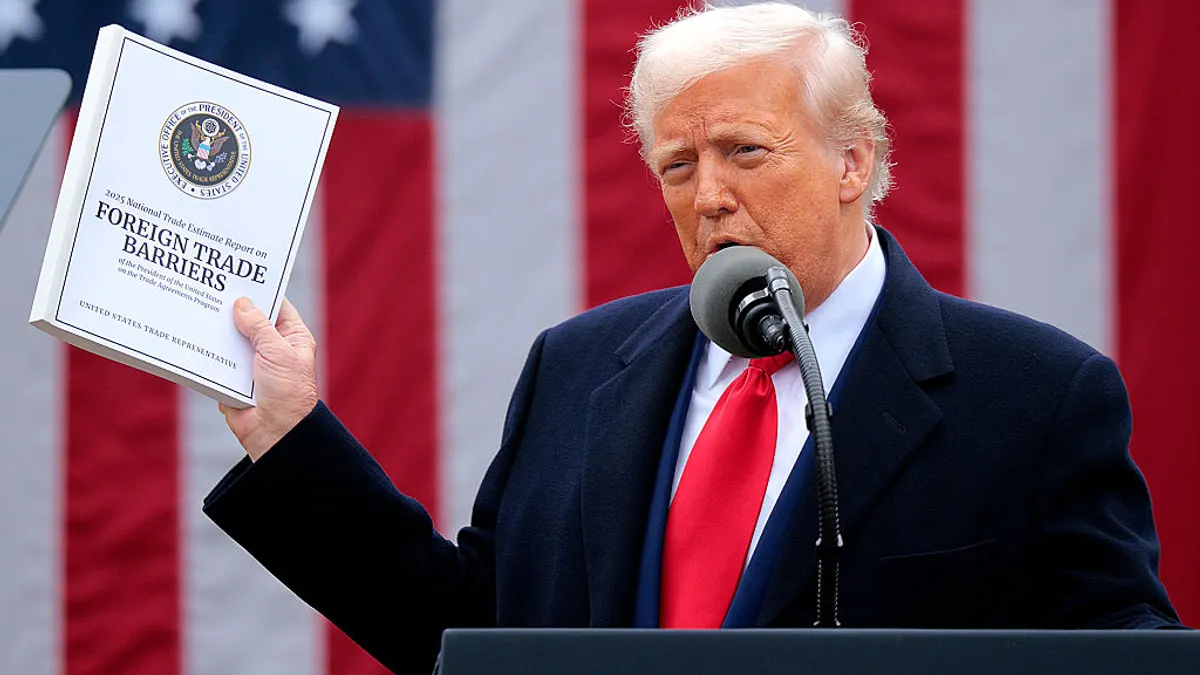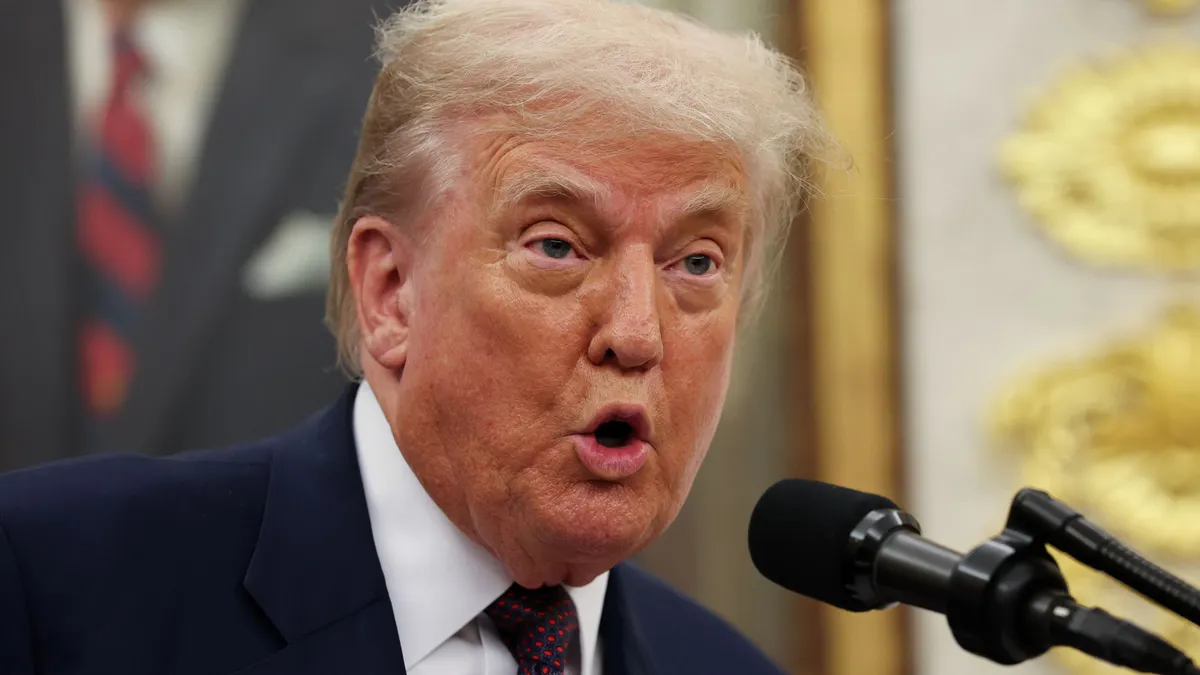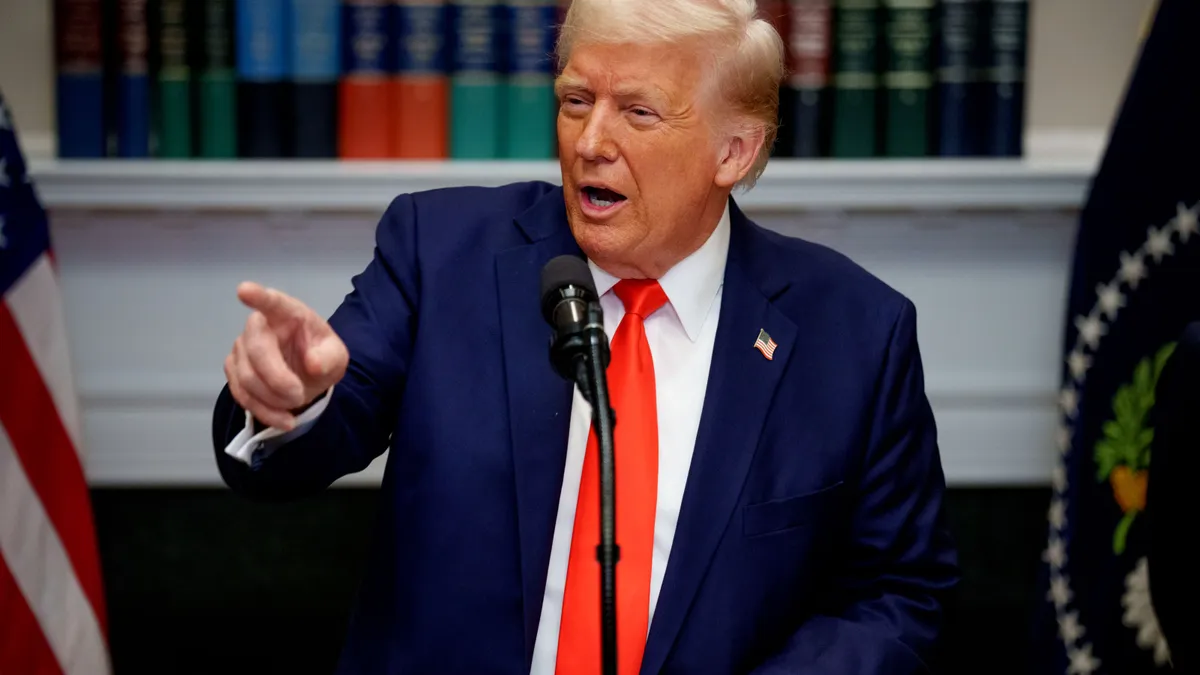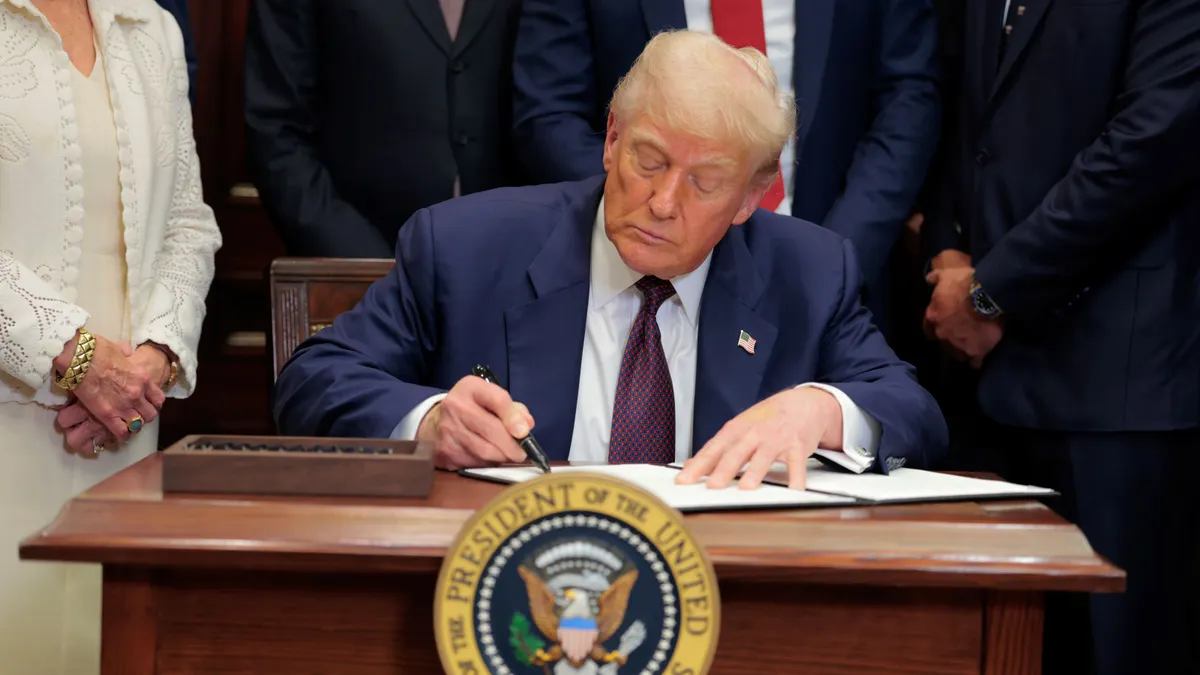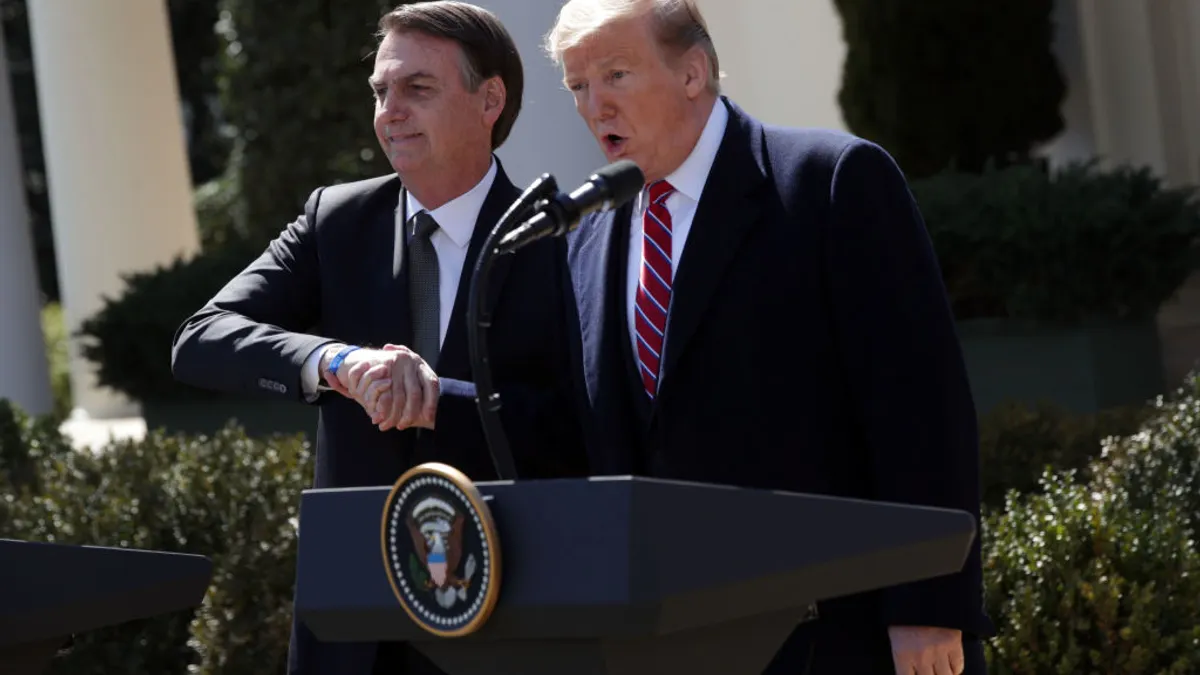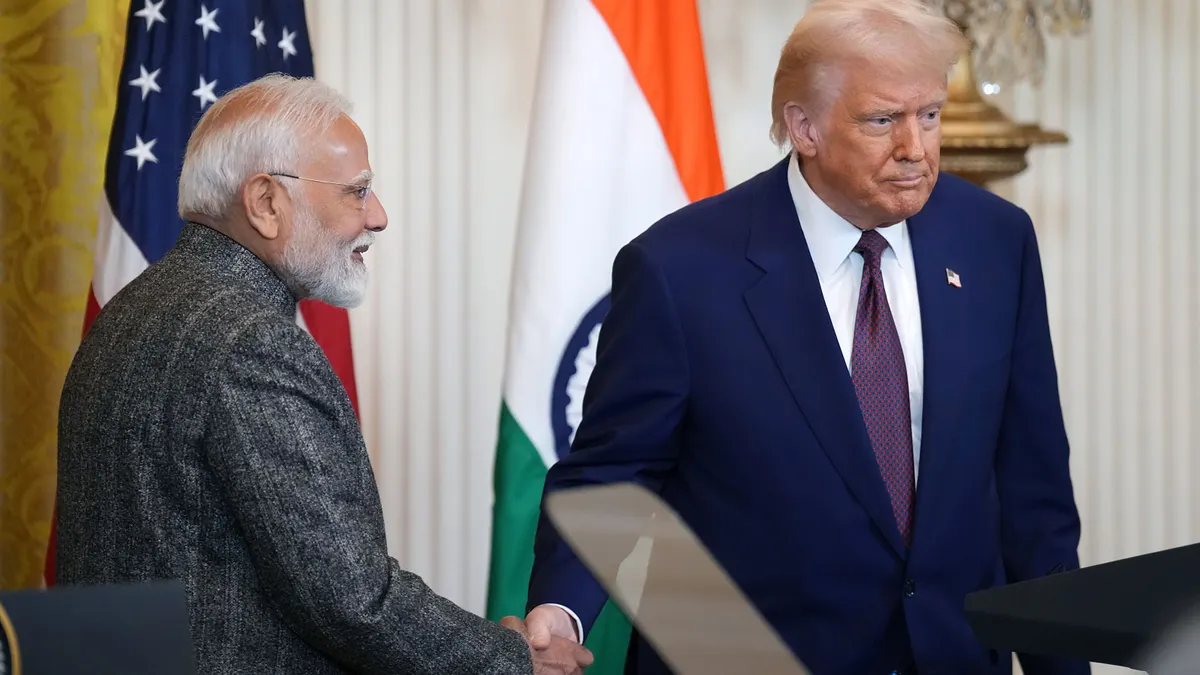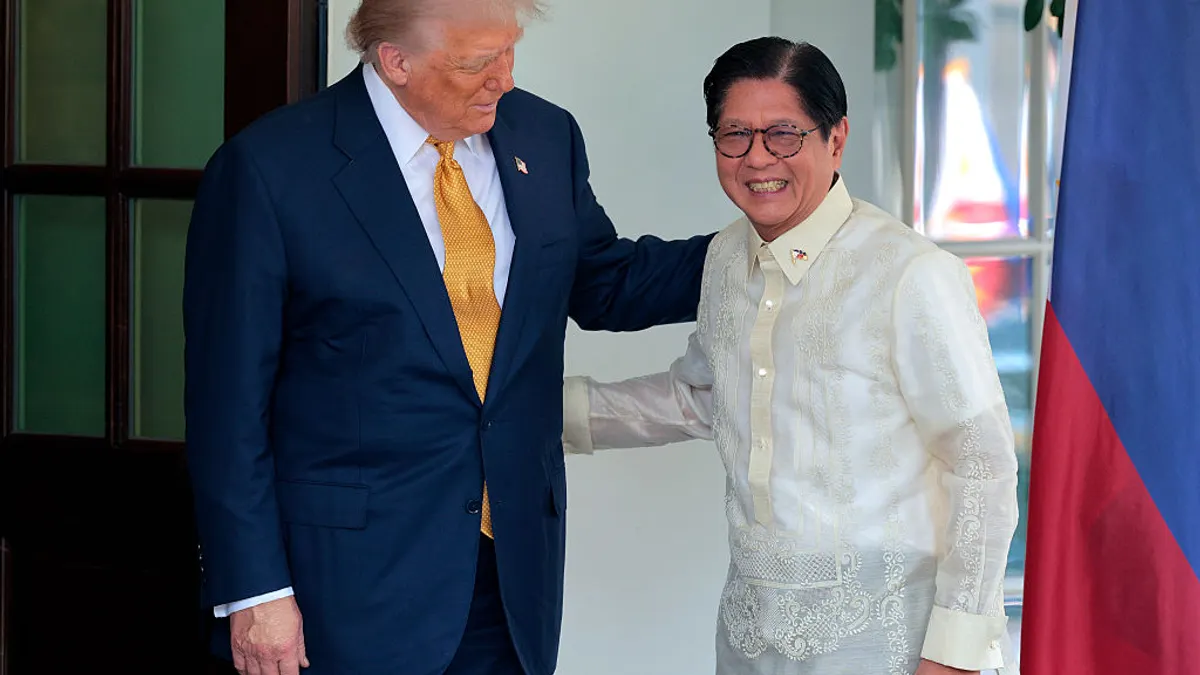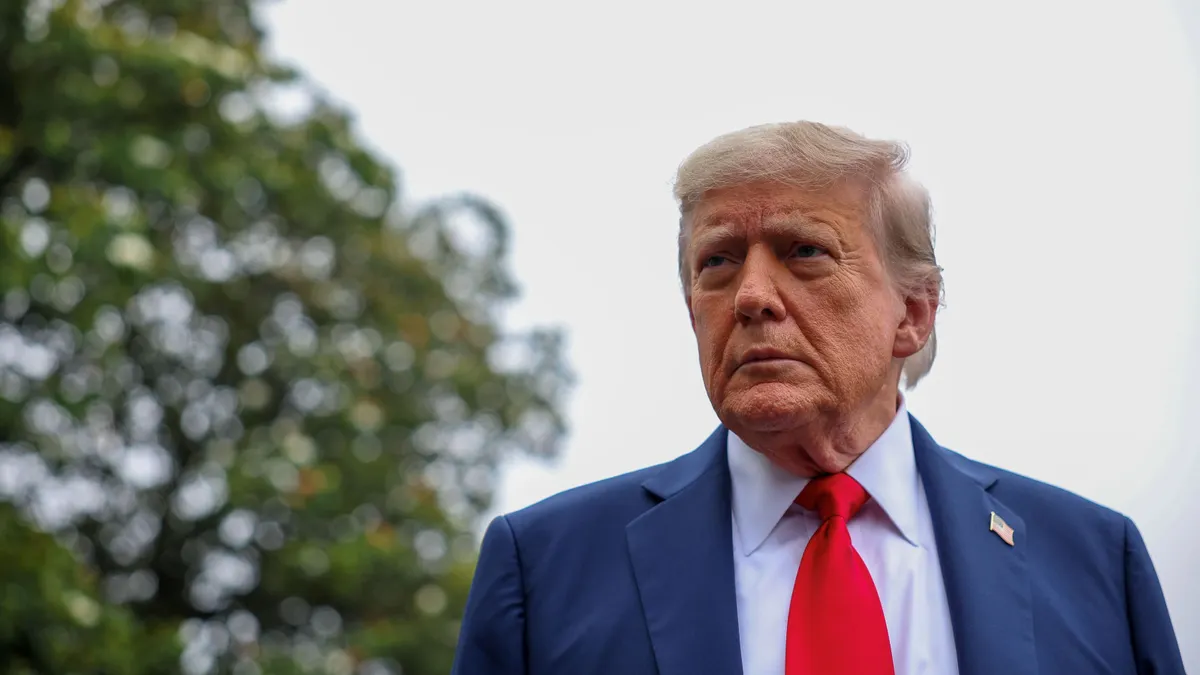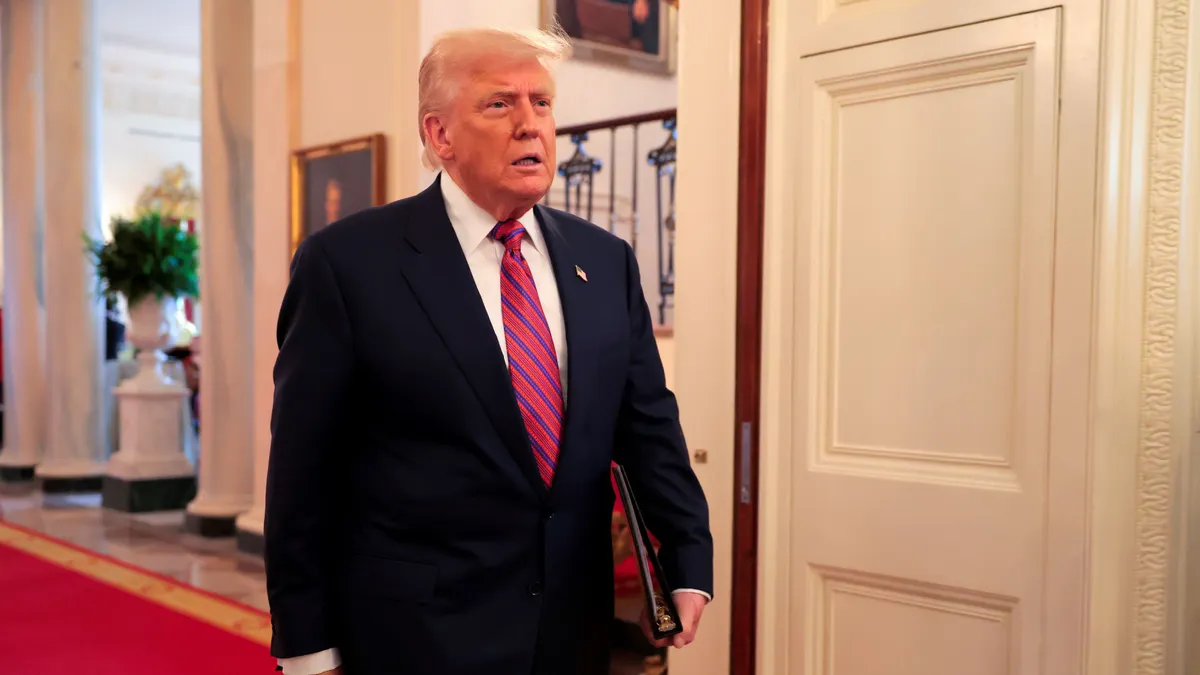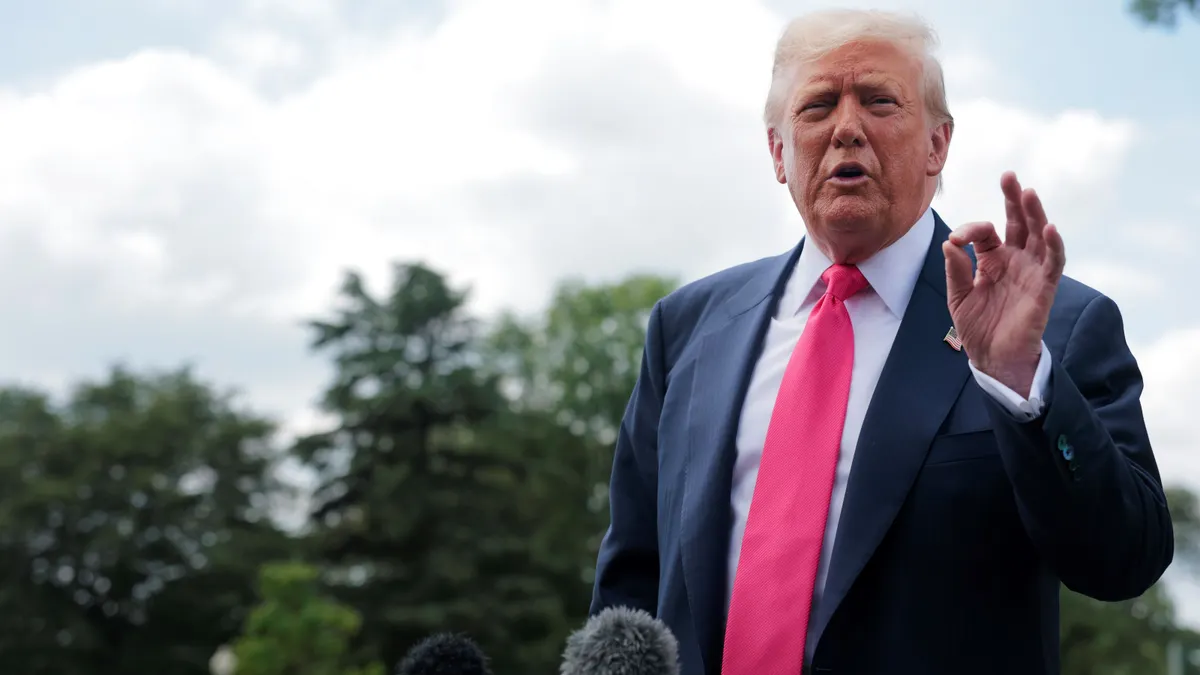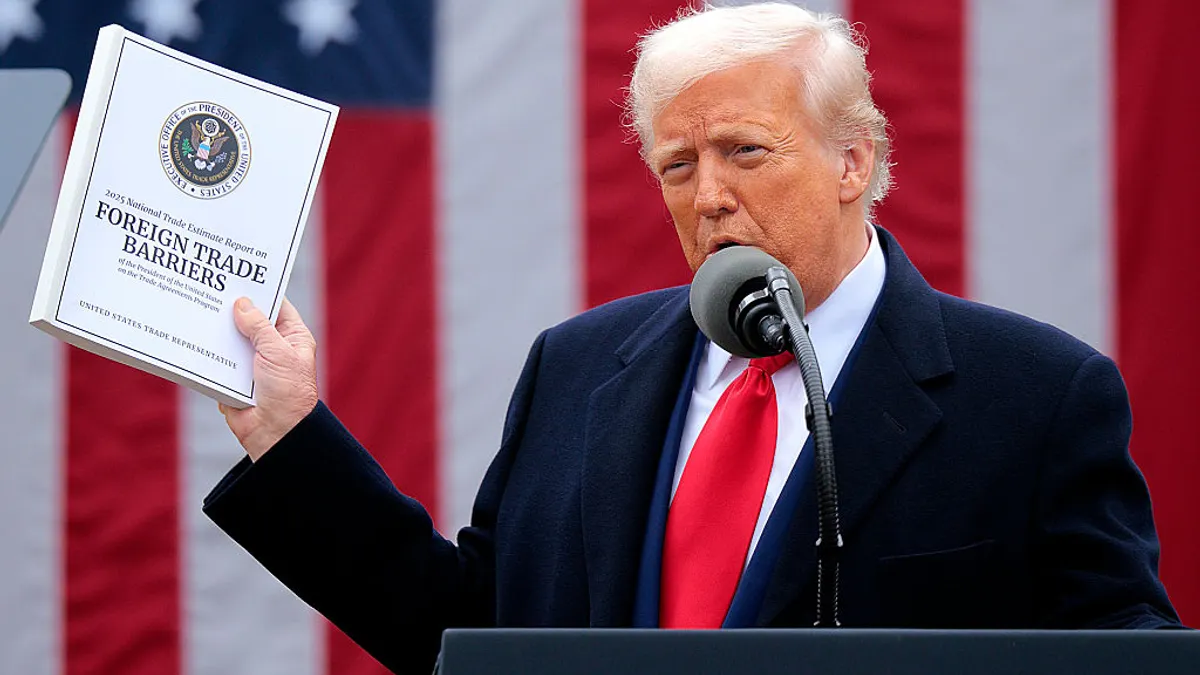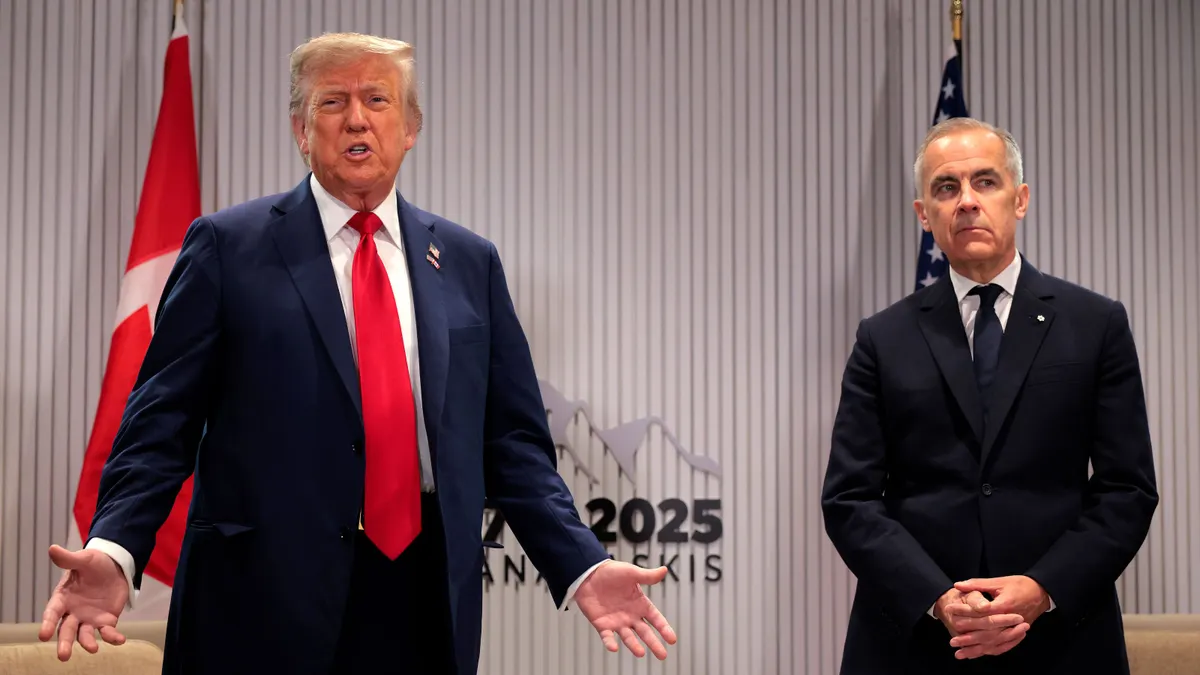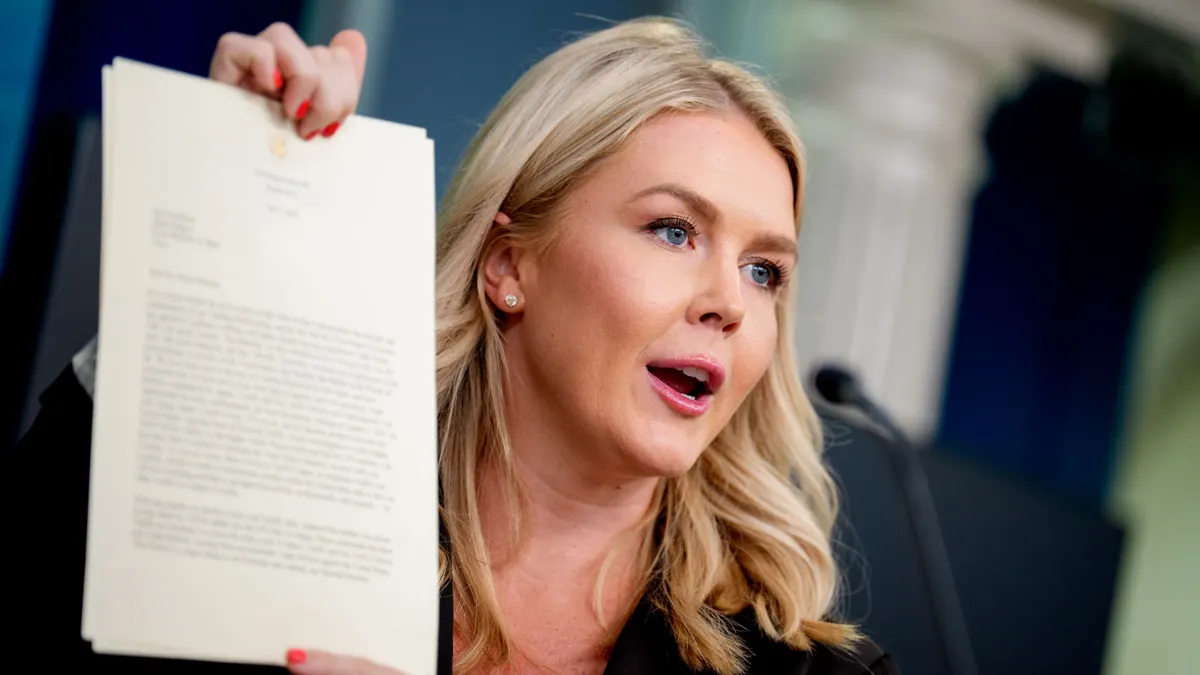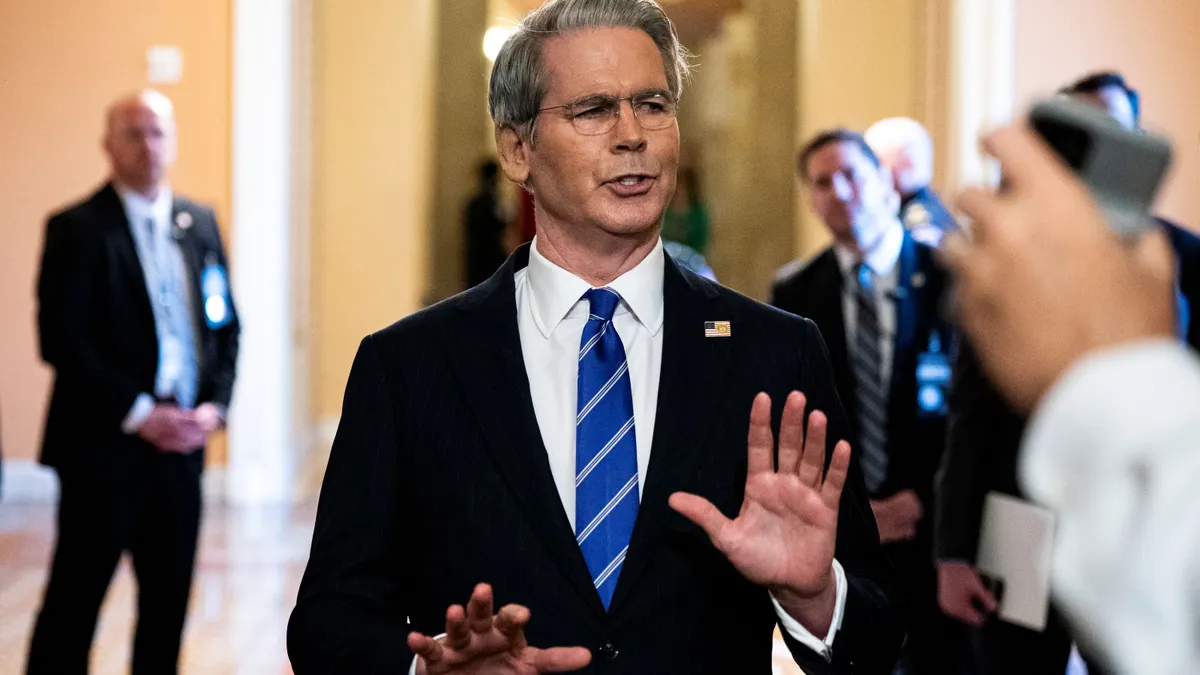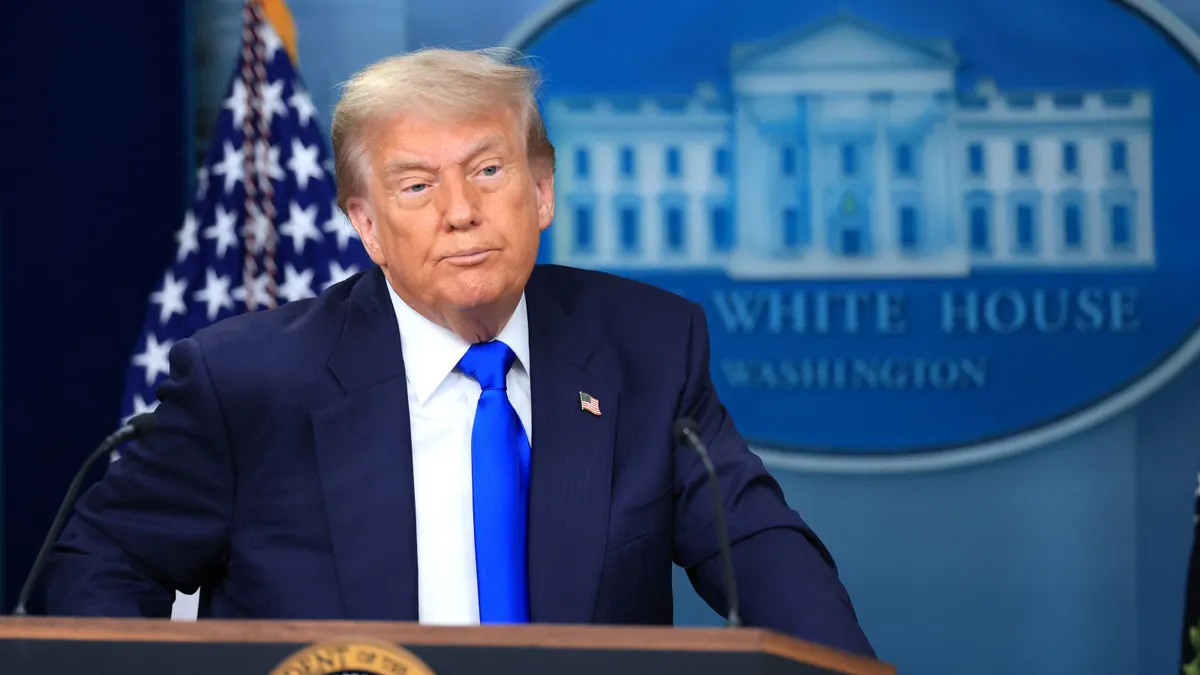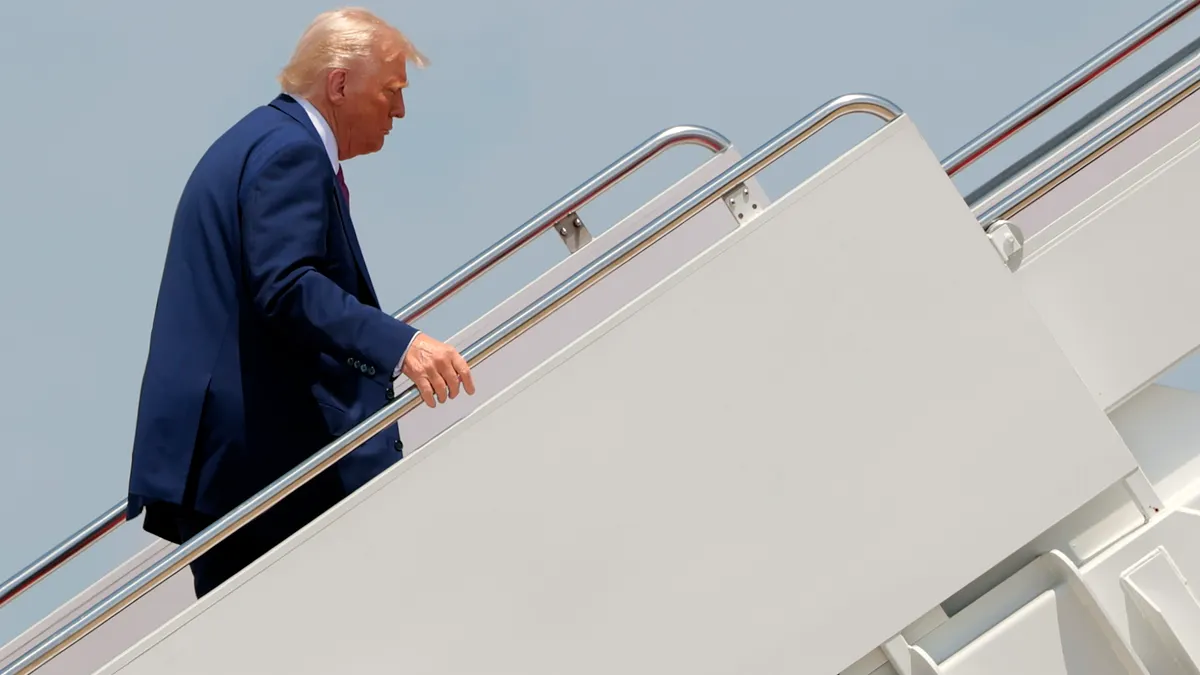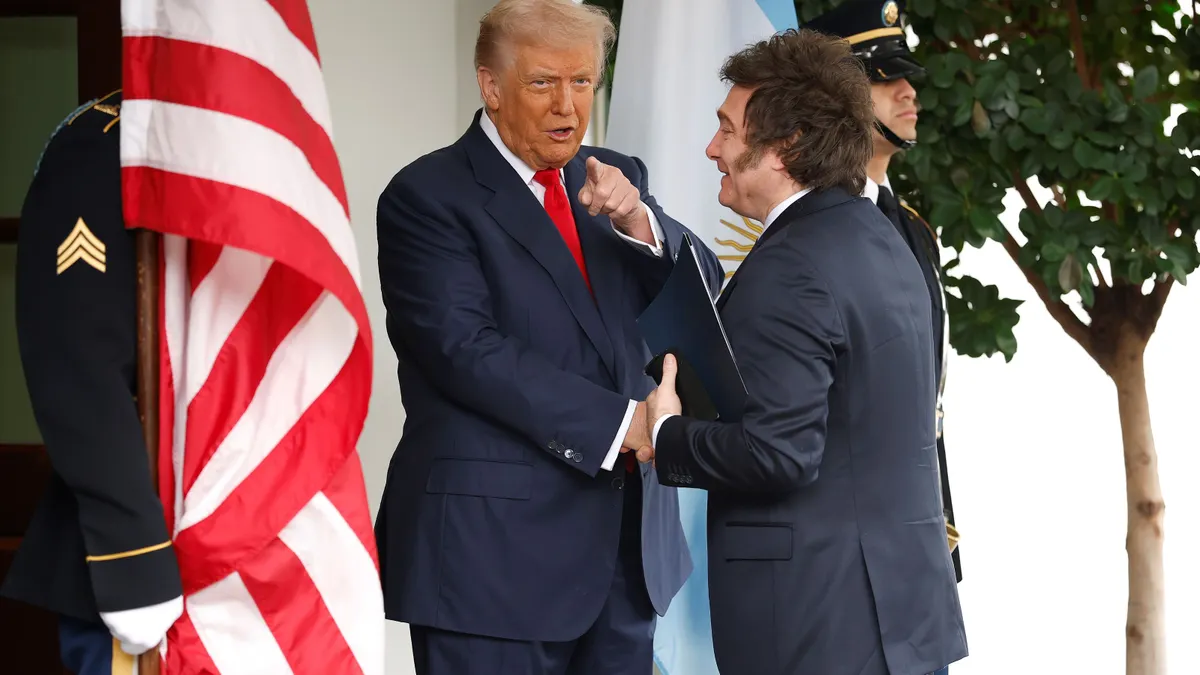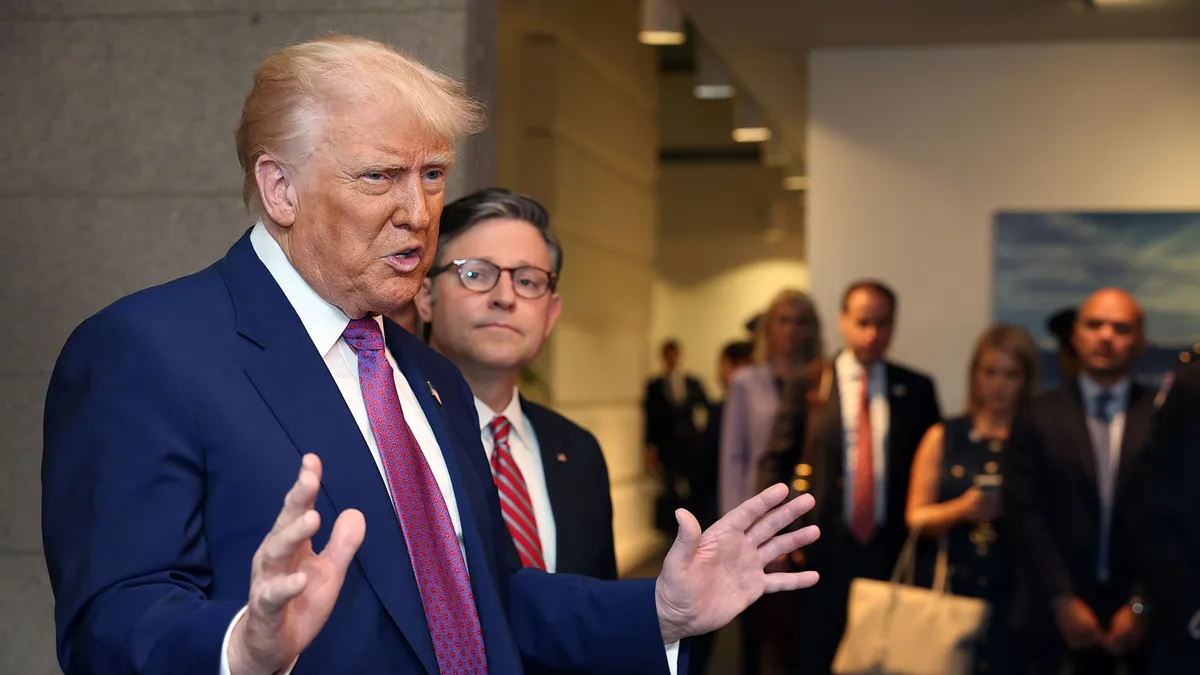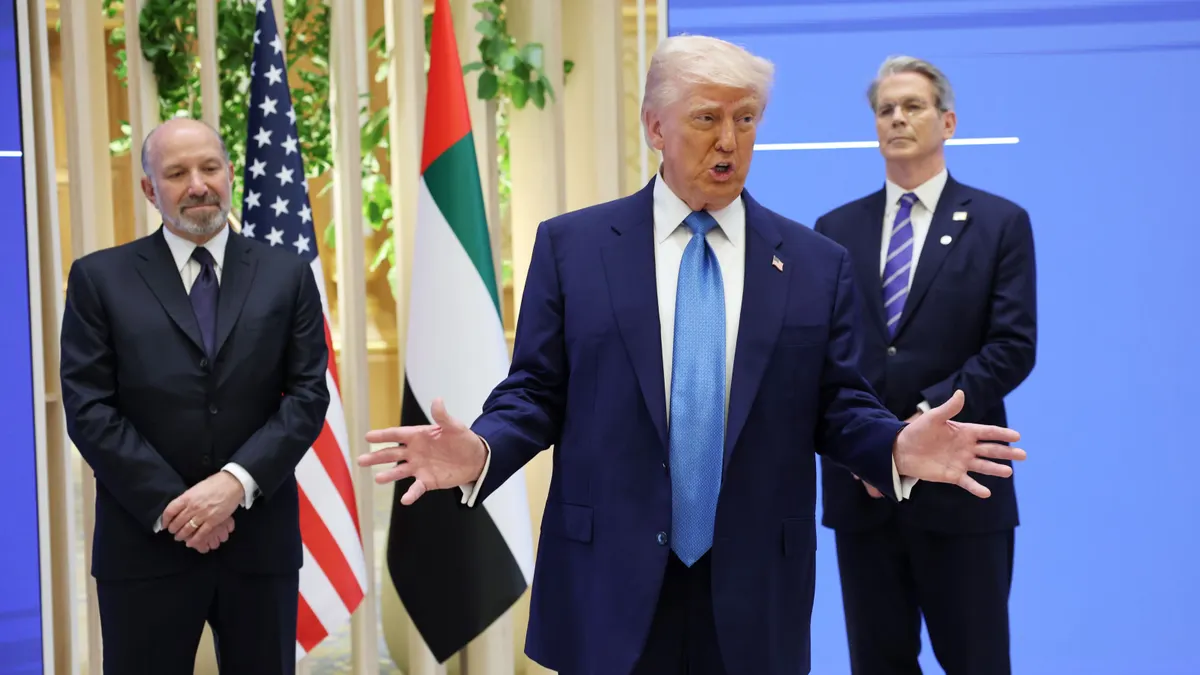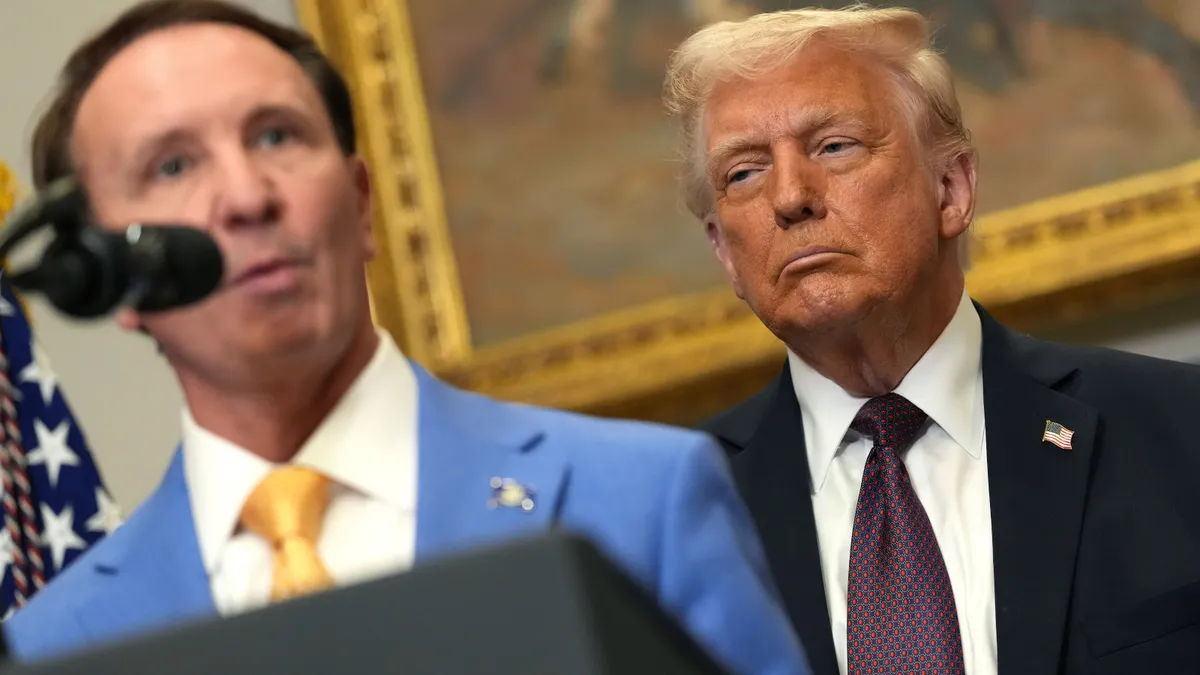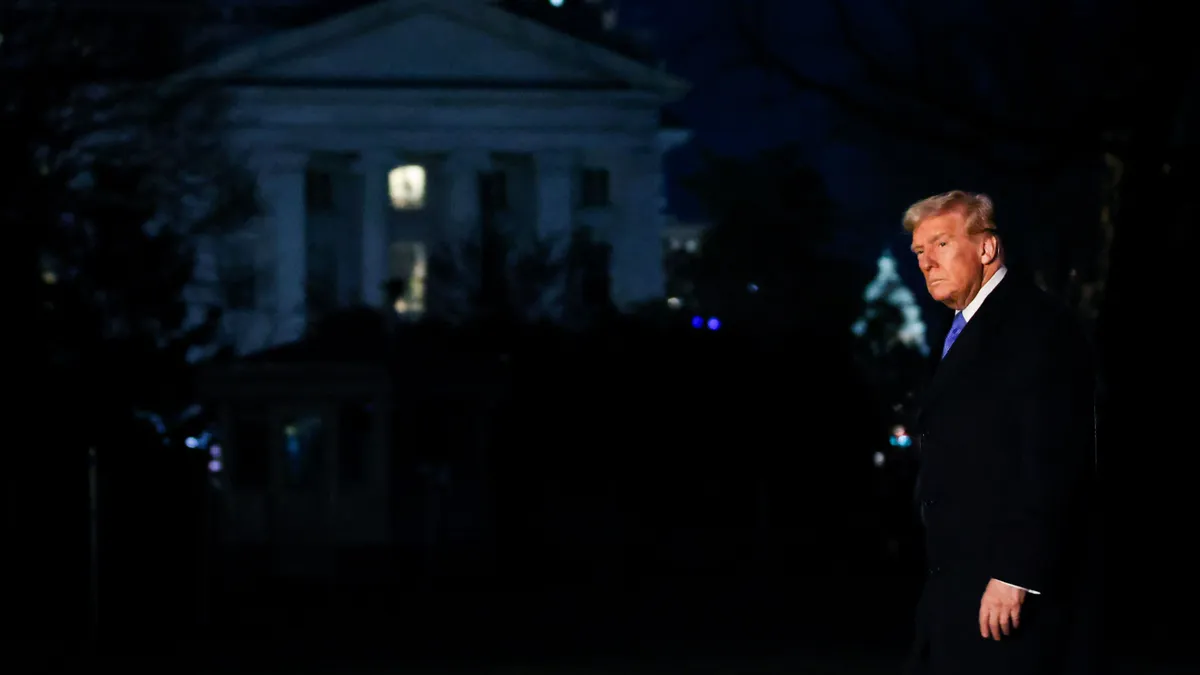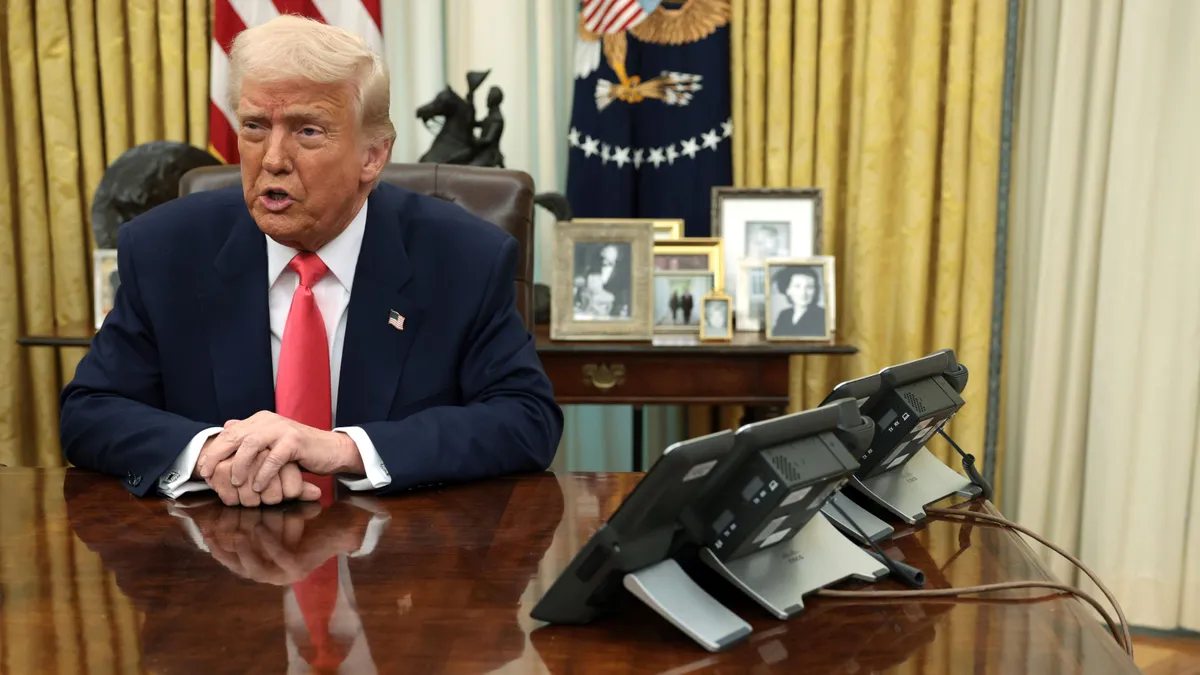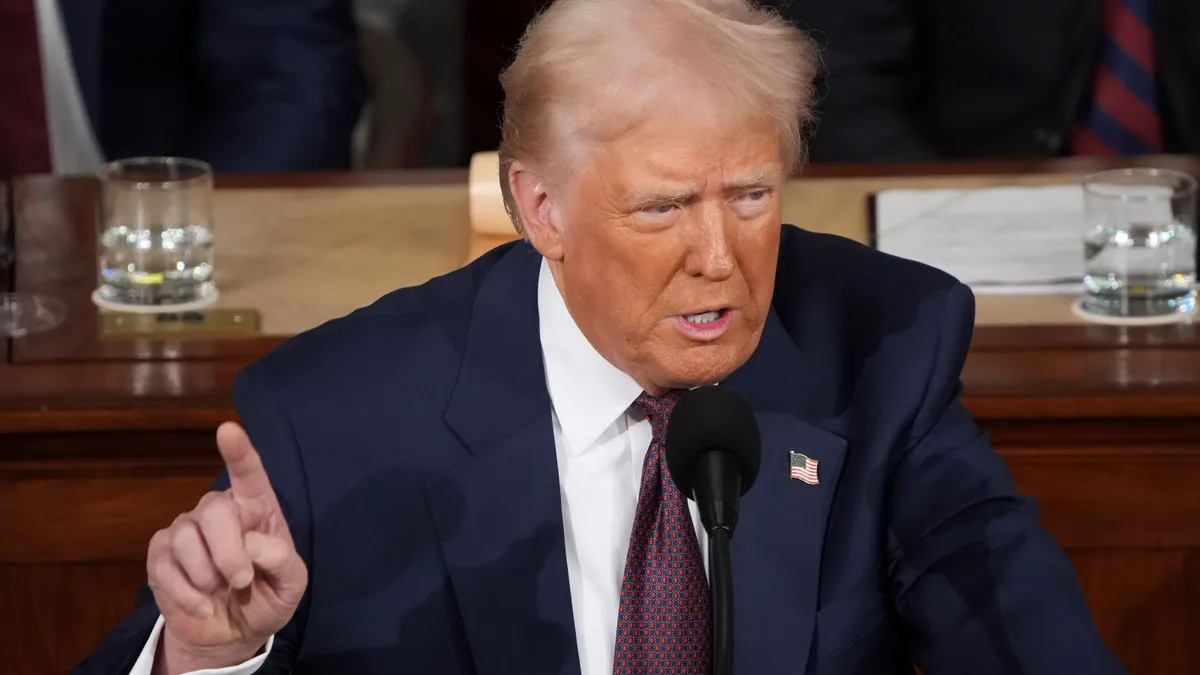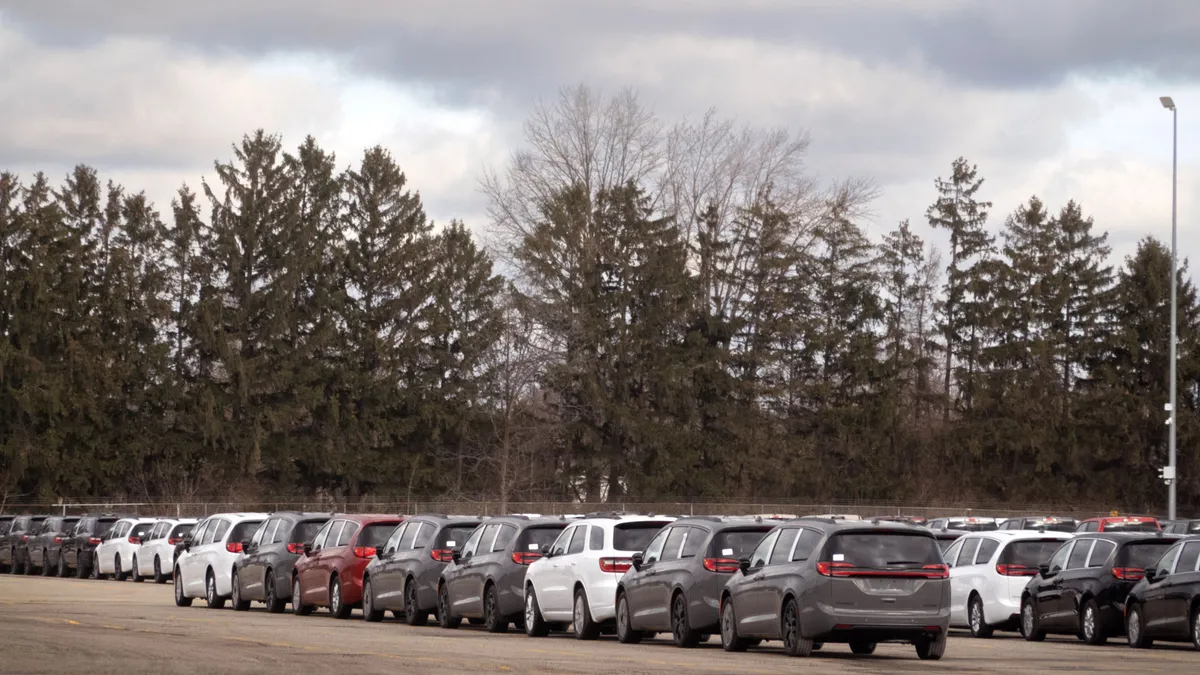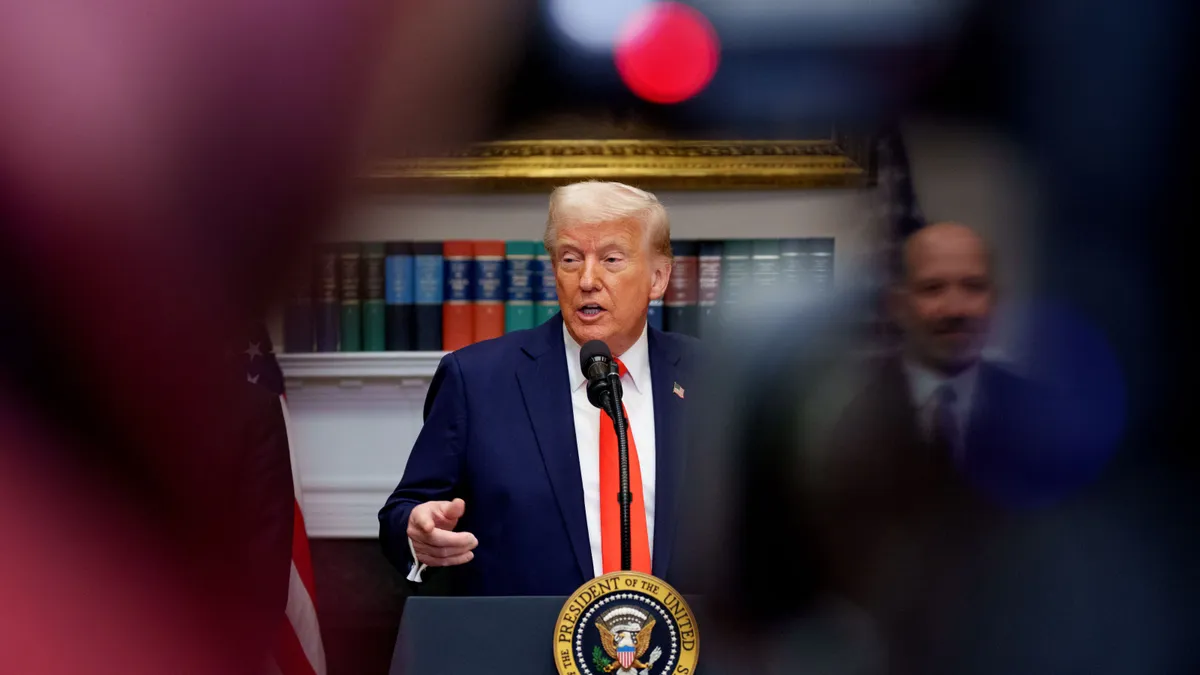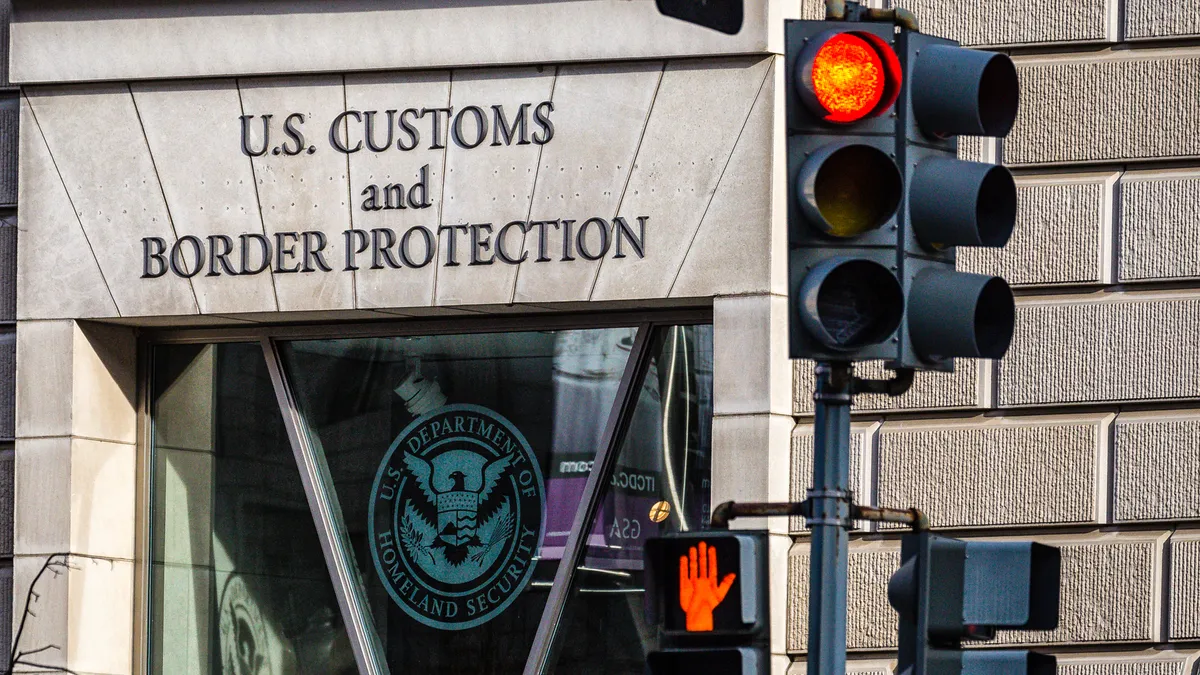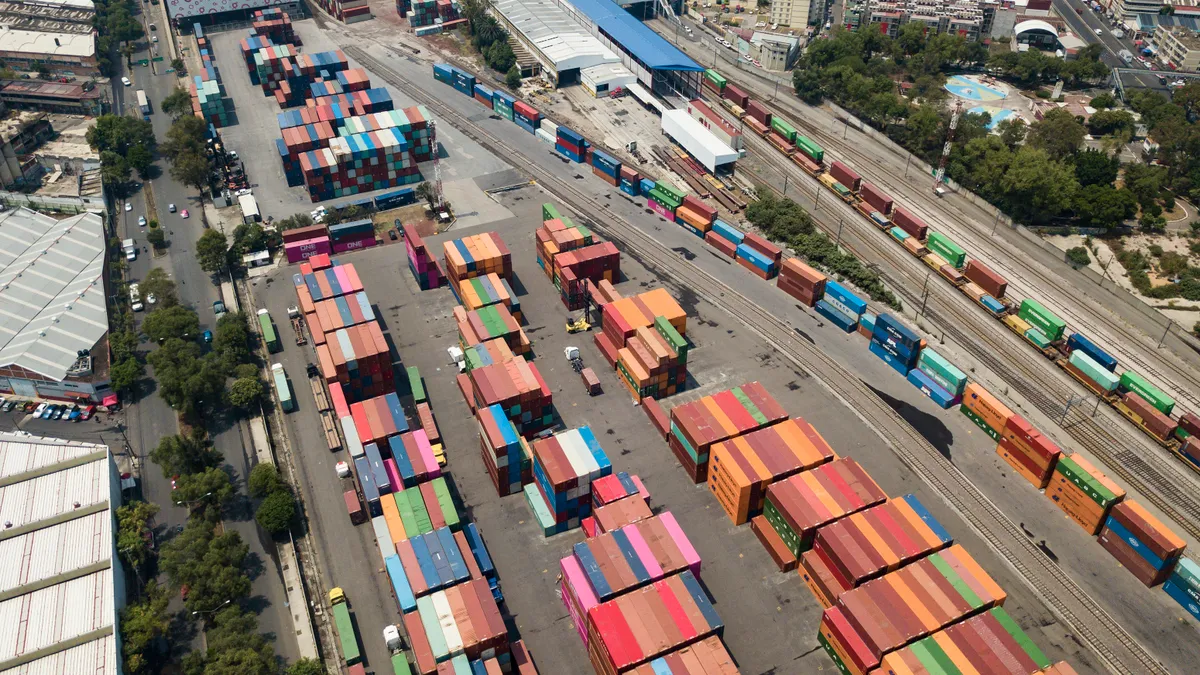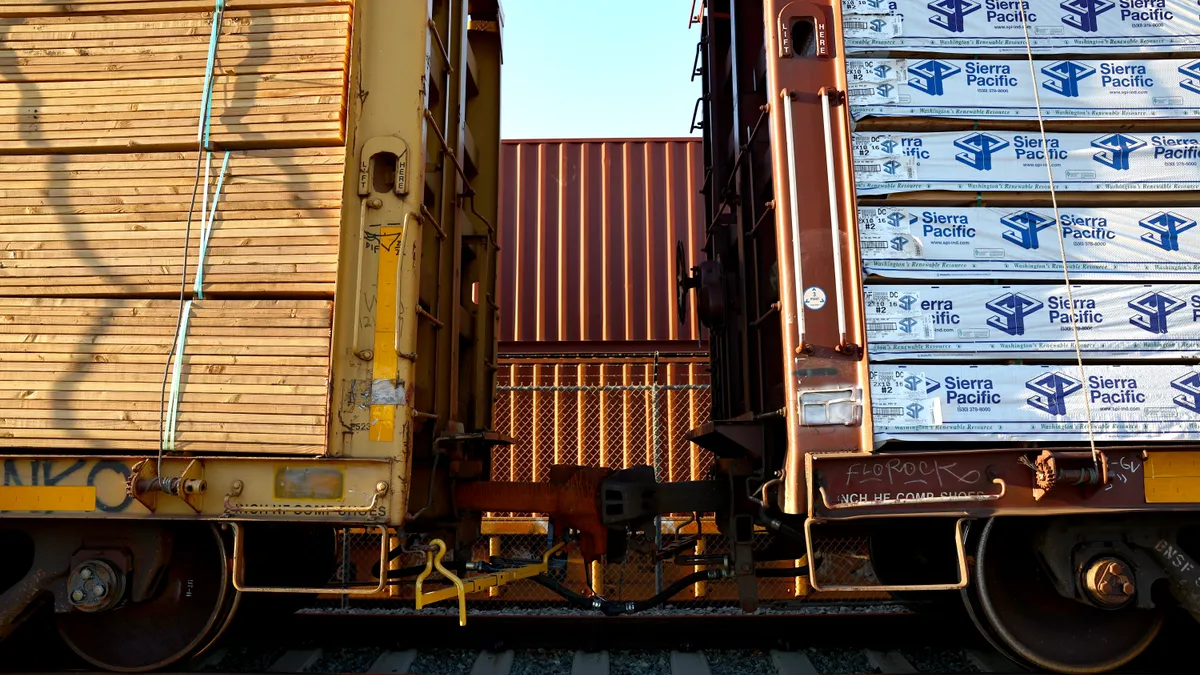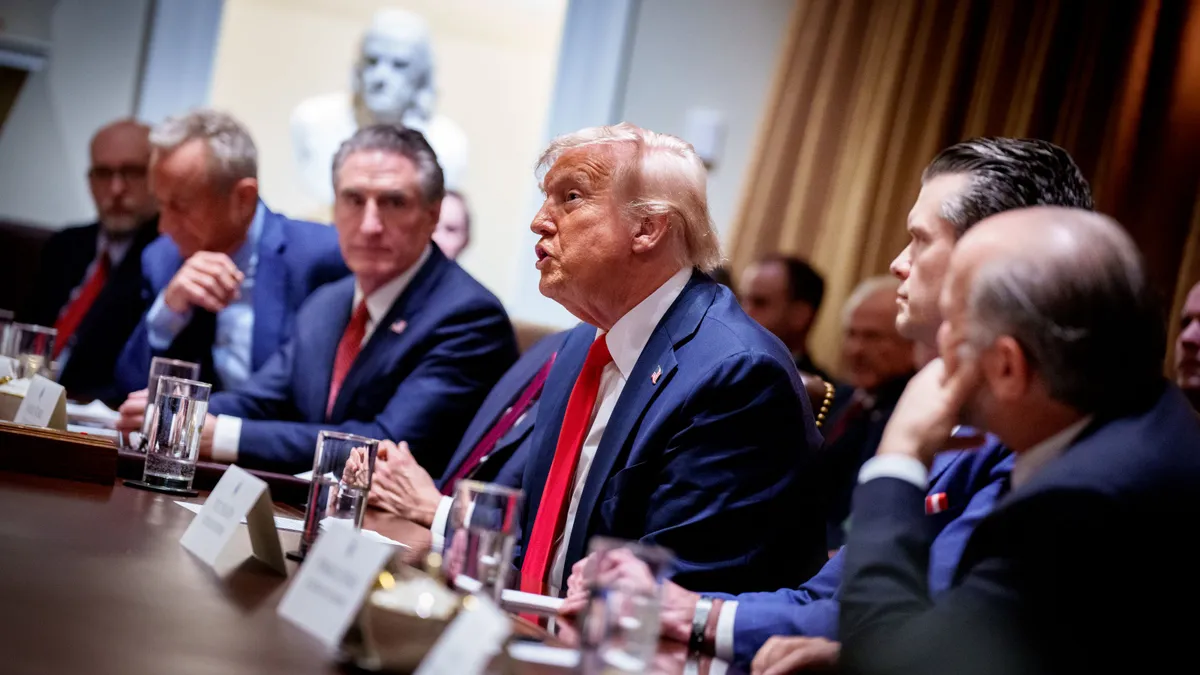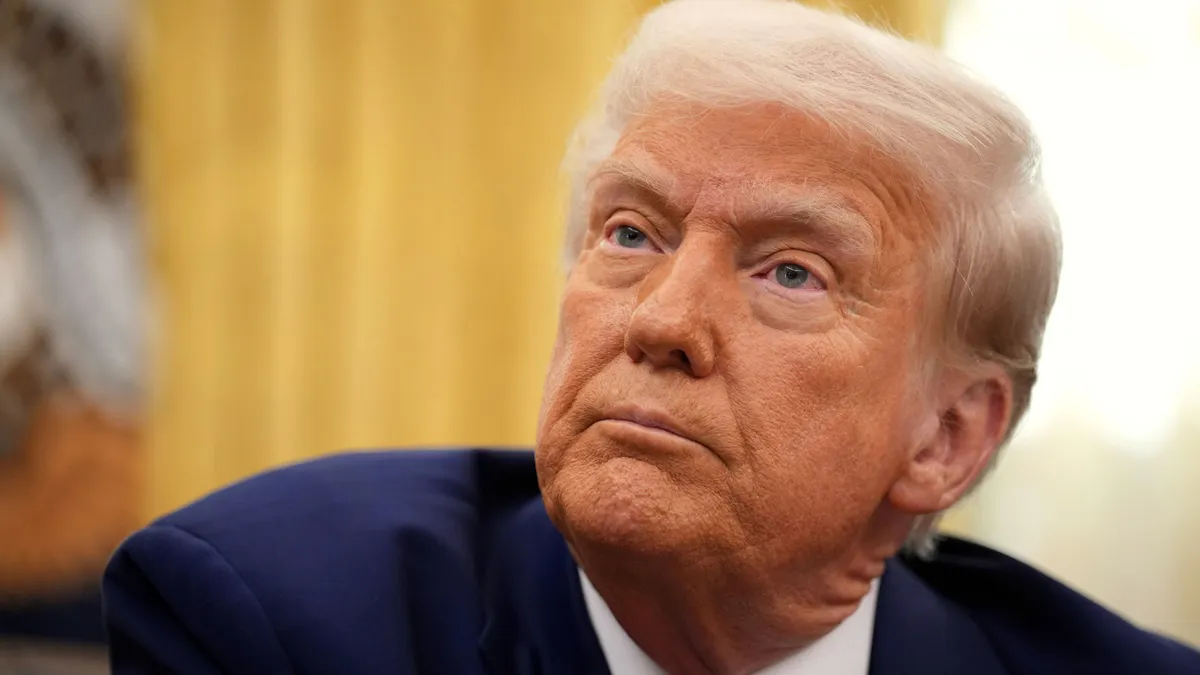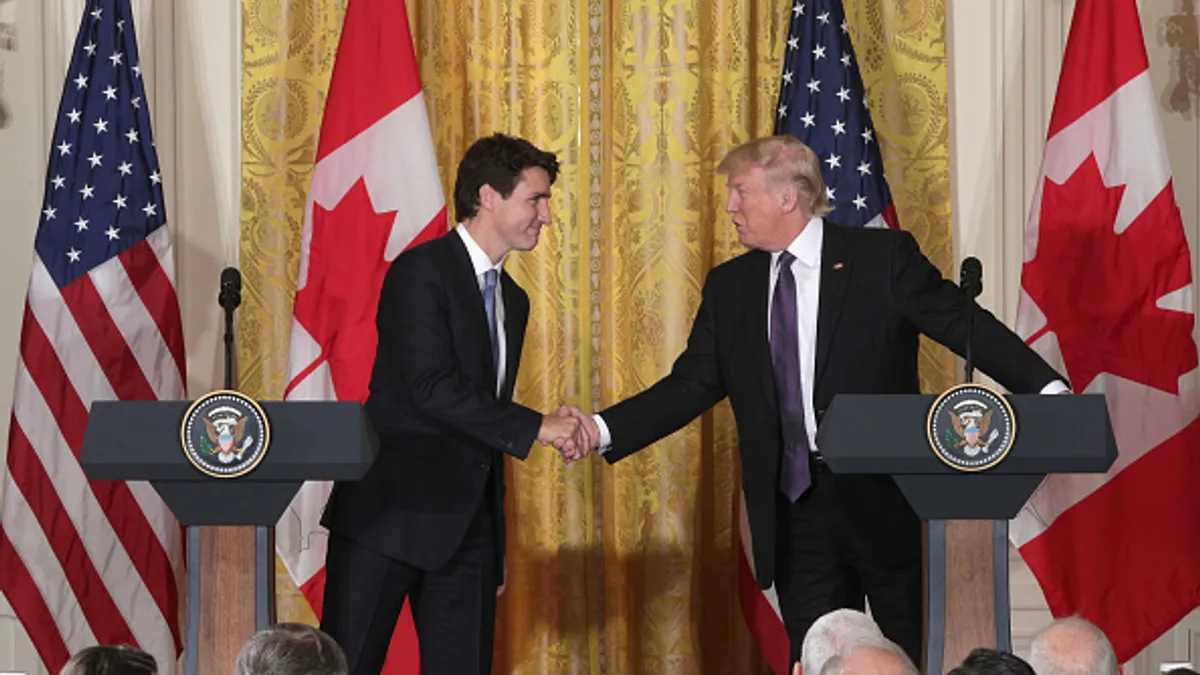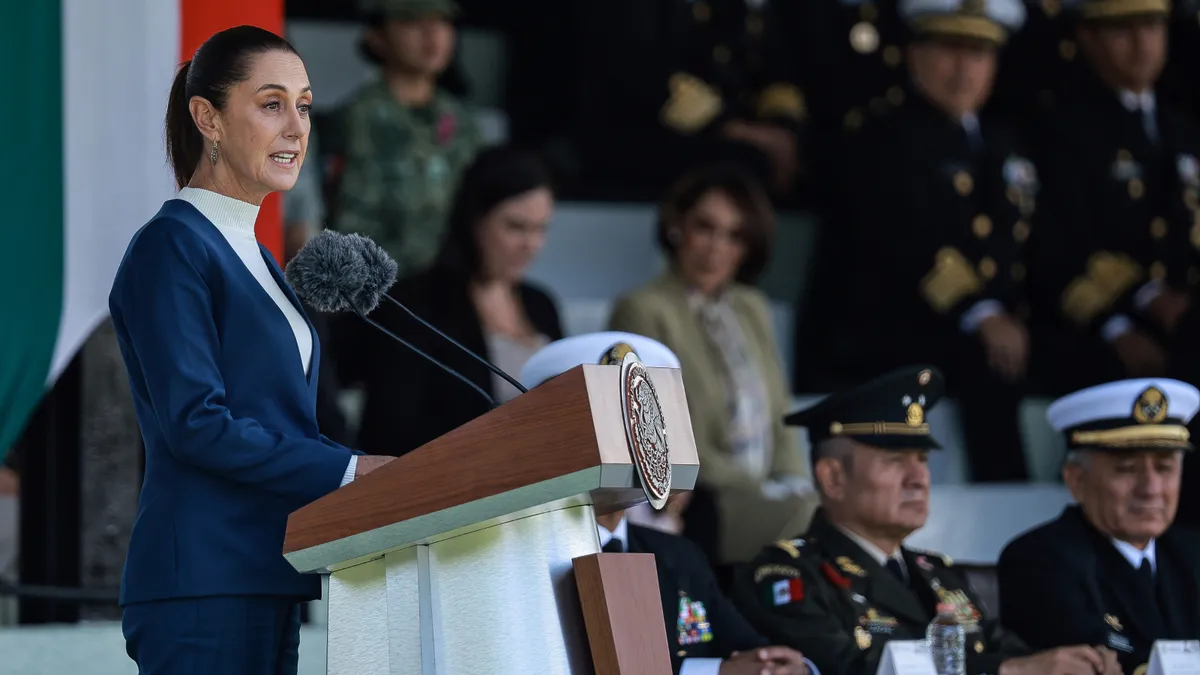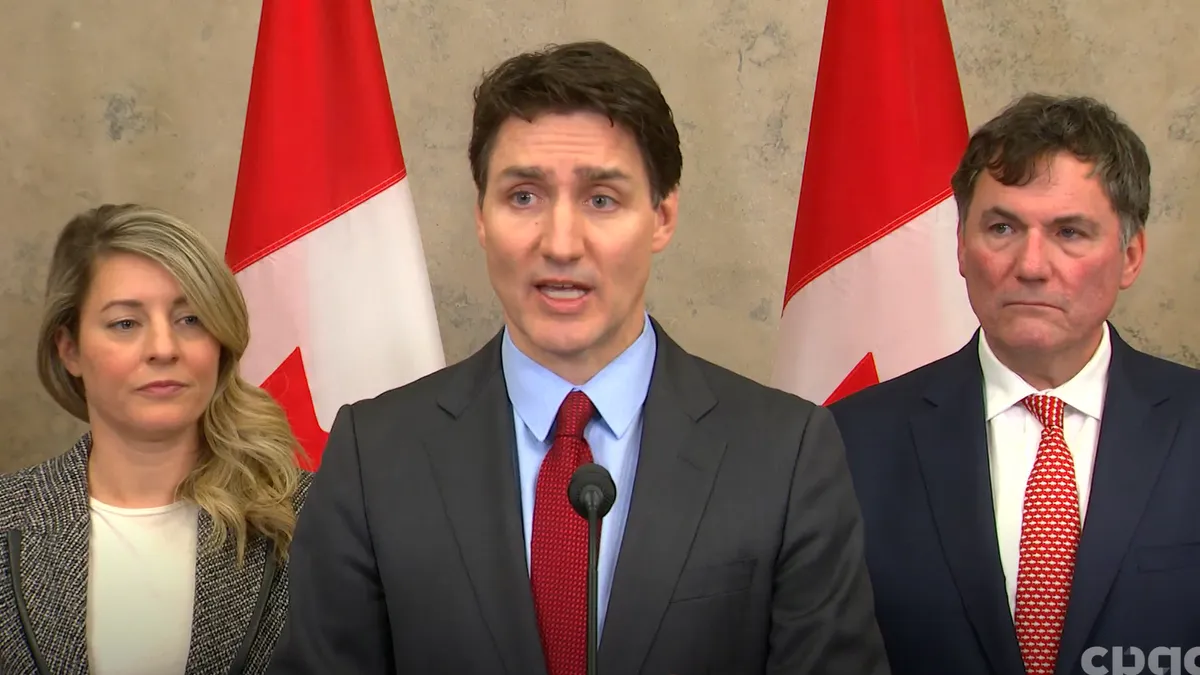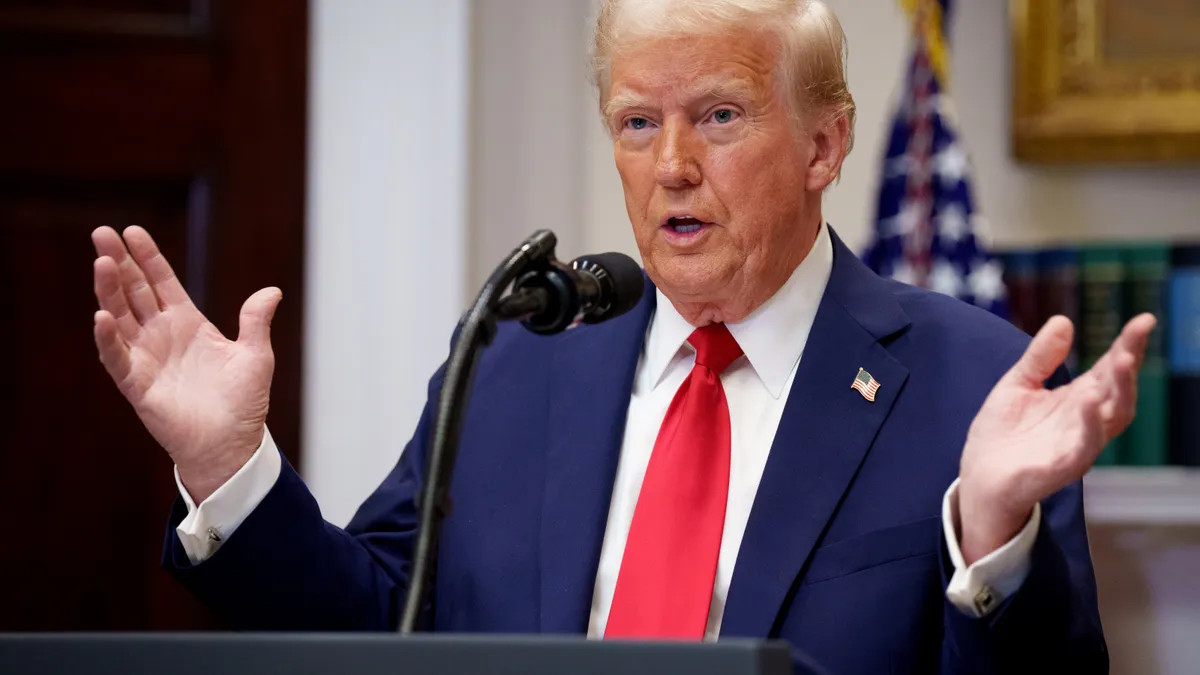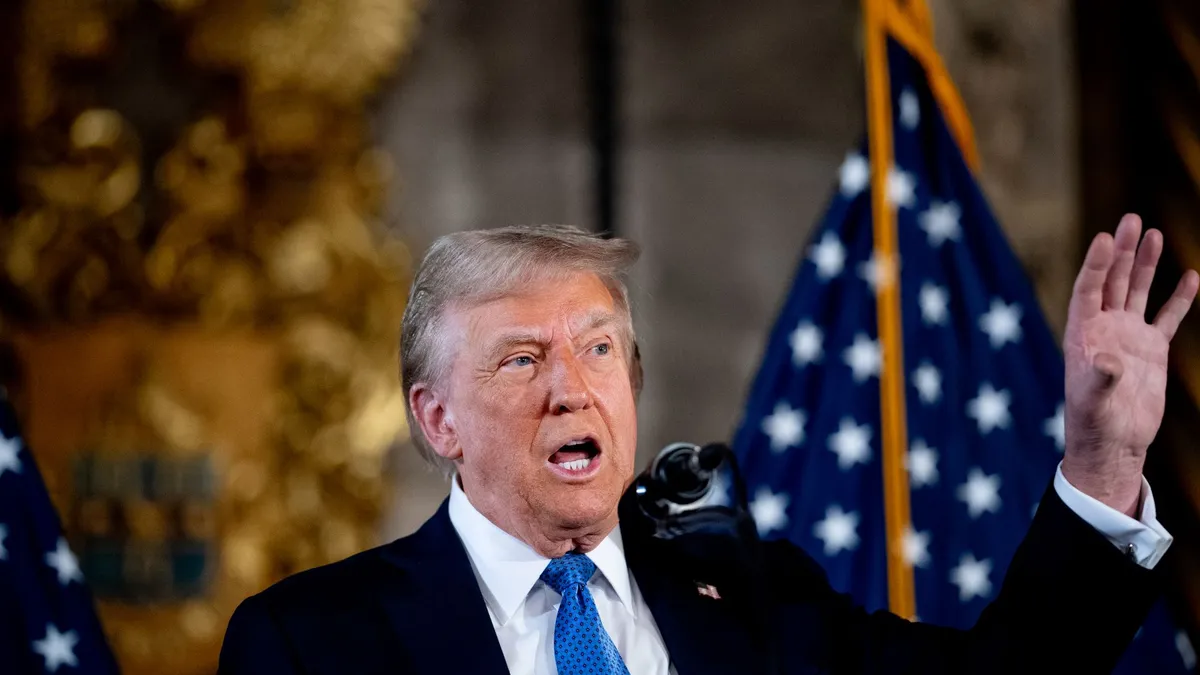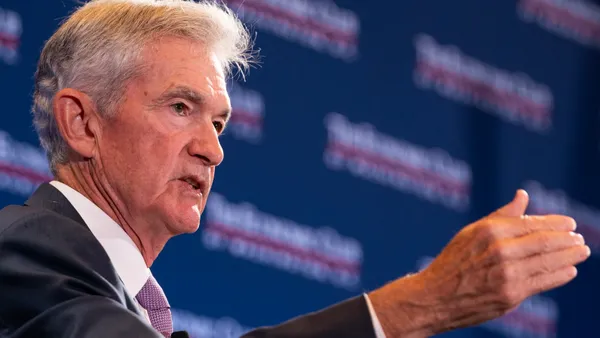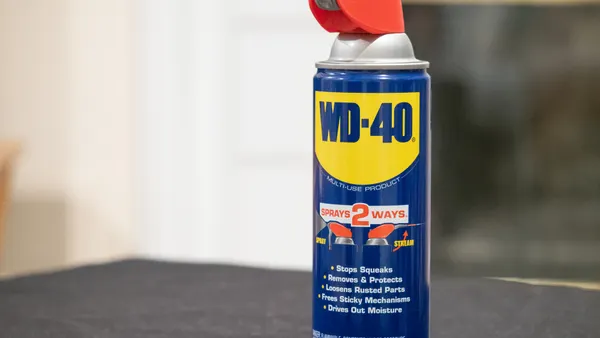President Donald Trump has employed several powers of the executive branch to enact a wide range of tariffs, including country-specific levies scheduled to return Aug. 1. However, Trump's future use of tariffs as a negotiating tool is likely to be determined in the courts, where several states and businesses plan to argue that he lacks the statutory authority to impose sweeping tariffs on all countries that trade with the U.S.
One of the critical proceedings challenging Trump's tariff use began Thursday. The administration is facing off against lawyers from five companies and 12 states before 11 judges of the U.S. Court of Appeals for the Federal Circuit. The court will decide whether to lift its stay of a U.S. Court of International Trade ruling that blocked Trump's broad use of duties, including a global 10% baseline tariff and various other country-specific levies, without congressional approval.
The case, V.O.S. Selections, Inc. v Trump, is one of several lawsuits with plaintiffs fighting tariffs imposed by the Trump administration. Here’s a look at five such cases and where they currently stand:
1. V.O.S. Selections, Inc. v. Trump
On April 14, V.O.S. Selections and four other import companies sued the Trump administration in the USCIT, claiming the president exceeded his statutory authority under the International Emergency Economic Powers Act (IEEPA) by imposing tariffs without congressional authorization.
The plaintiffs also claimed that the tariffs hurt them financially by increasing costs and disrupting their operations.
On April 23, 12 states filed a parallel lawsuit, mainly making the same arguments. So, the USCIT consolidated the two cases, and a three-judge panel ruled on May 28 that the president had no authority to impose across-the-board tariffs under the IEEPA. As a result of the findings, the USCIT issued a permanent injunction against future tariffs.
The Trump administration immediately appealed the ruling to the U.S. Court of Appeals for the Federal Circuit, which issued a temporary stay on the injunction while considering the appeal. Oral arguments for the case are scheduled to begin Thursday.
The hearing is unusual because all 11 judges will hear arguments en banc, instead of via a more typical three-judge panel. An en banc hearing is reserved for cases of exceptional importance and indicates the judges want a ruling reflecting the view of the entire court.
2. Learning Res., Inc. v. Trump
On April 22, Learning Resources Inc. and hand2mind Inc., two small businesses specializing in educational products, filed a lawsuit challenging the legality of Trump's tariffs under the IEEPA.
A judge from the U.S. District Court for the District of Columbia issued a preliminary injunction on May 29, preventing the Trump administration from collecting IEEPA tariffs from the two plaintiffs. However, the U.S. Court of Appeals for the District of Columbia Circuit (CADC) granted the administration's request for a stay until it could rule on the case's merits.
3. State of California v. Trump
On April 16, California sued Trump in the U.S. District Court of Northern California, challenging the president's authority to unilaterally impose sweeping tariffs under the IEEPA. The suit alleges the tariffs exceed Trump's presidential authority and have caused significant harm to California's economy, businesses and consumers.
A District Court judge in June dismissed the case on jurisdictional grounds, ruling the suit belonged in the USCIT. California then sought appellate review in the U.S. Court of Appeals for the Ninth Circuit. A decision is pending.
4. Webber, et al. v. United States Department of Homeland Security
On April 11, Montana State Senator Susan Webber and rancher Jonathan St. Goddard, both citizens of the Blackfeet Nation, sued the U.S. and the U.S. Homeland Security Department, challenging executive orders and proclamations that imposed new tariffs on goods entering the U.S. from Canada. The plaintiffs filed the suit in the U.S. District Court for the District of Montana.
The plaintiffs challenged the tariff orders, claiming they exceeded presidential and statutory authority under the IEEPA and Trade Expansion Act. The suit also claimed no clear foreign threat justified the sweeping tariffs, as the Trump administration claimed.
The case also says that Trump's actions breach two treaties signed by the U.S. government: the 1794 Jay Treaty and the 1814 Treaty of Ghent, which exempted indigenous trade from duties, according to the plaintiffs.
The district court granted the government's request to transfer the case to the USCIT on April 25, ruling the suit belonged in the specialized court. The plaintiffs appealed the transfer order to the Ninth Circuit Court of Appeals, which denied the request.
5. Axle of Dearborn, Inc. v. Department of Commerce
On May 16, Axle of Dearborn, which does business as Detroit Axle, filed a lawsuit in the USCIT against the Commerce Department and three other federal agencies, challenging the legality of several executive orders eliminating the de minimis exemption.
The Michigan-based automotive parts distributor argues that the president lacks the statutory and constitutional authority to revoke the exemption, which allows duty-free importation of goods valued at less than $800. The company called on the court to block multiple executive orders implementing tariffs and banning the exemption.
The government argues that the president has the power under the IEEPA and the U.S. Constitution to take "emergency" actions, including withdrawing the de minimis exemption as part of a response to international trade threats.
The Trump administration requested a halt to the proceedings until the V.O.S. Selections case is resolved. On July 28, the USCIT granted the stay.
This story was first published in our Procurement Weekly newsletter. Sign up here.



